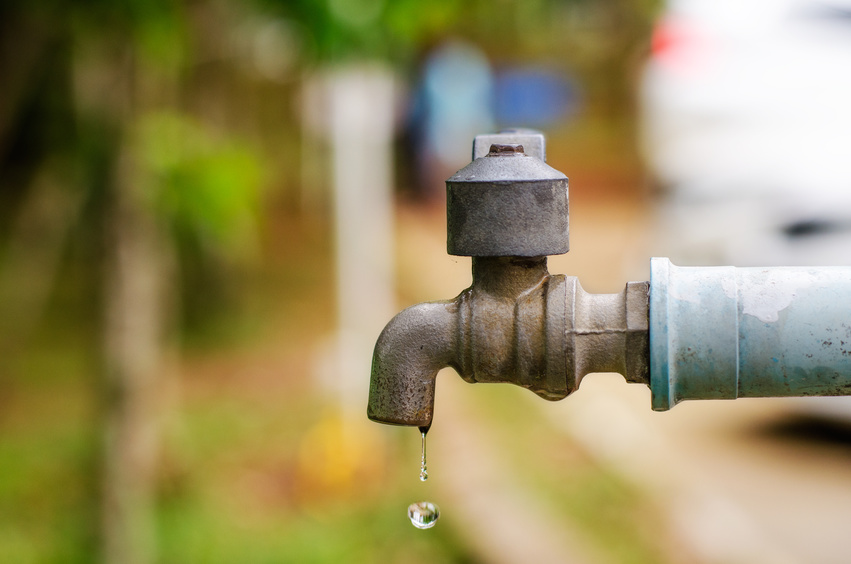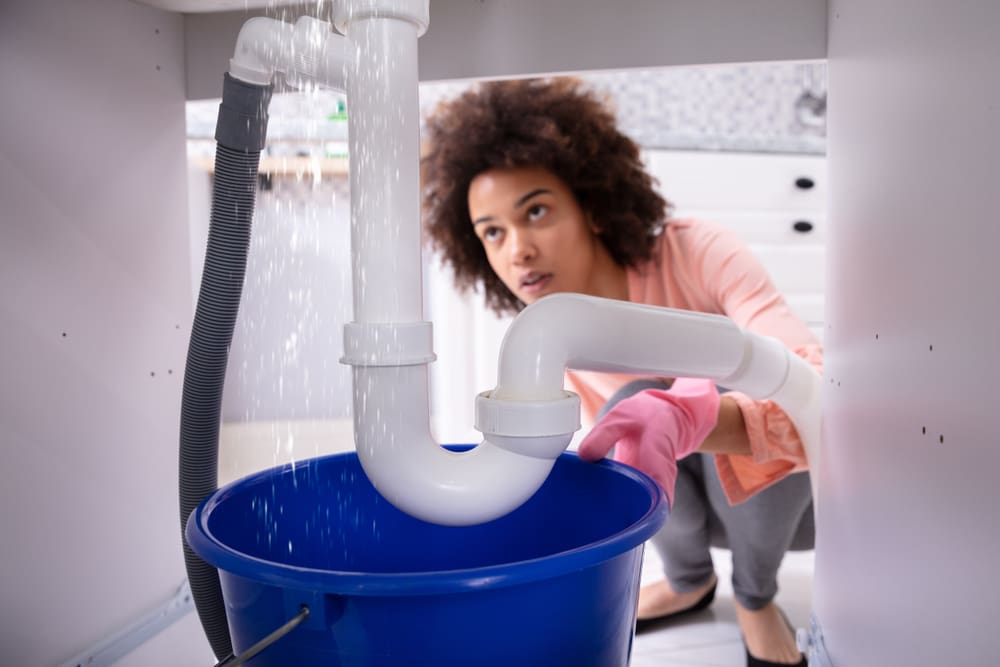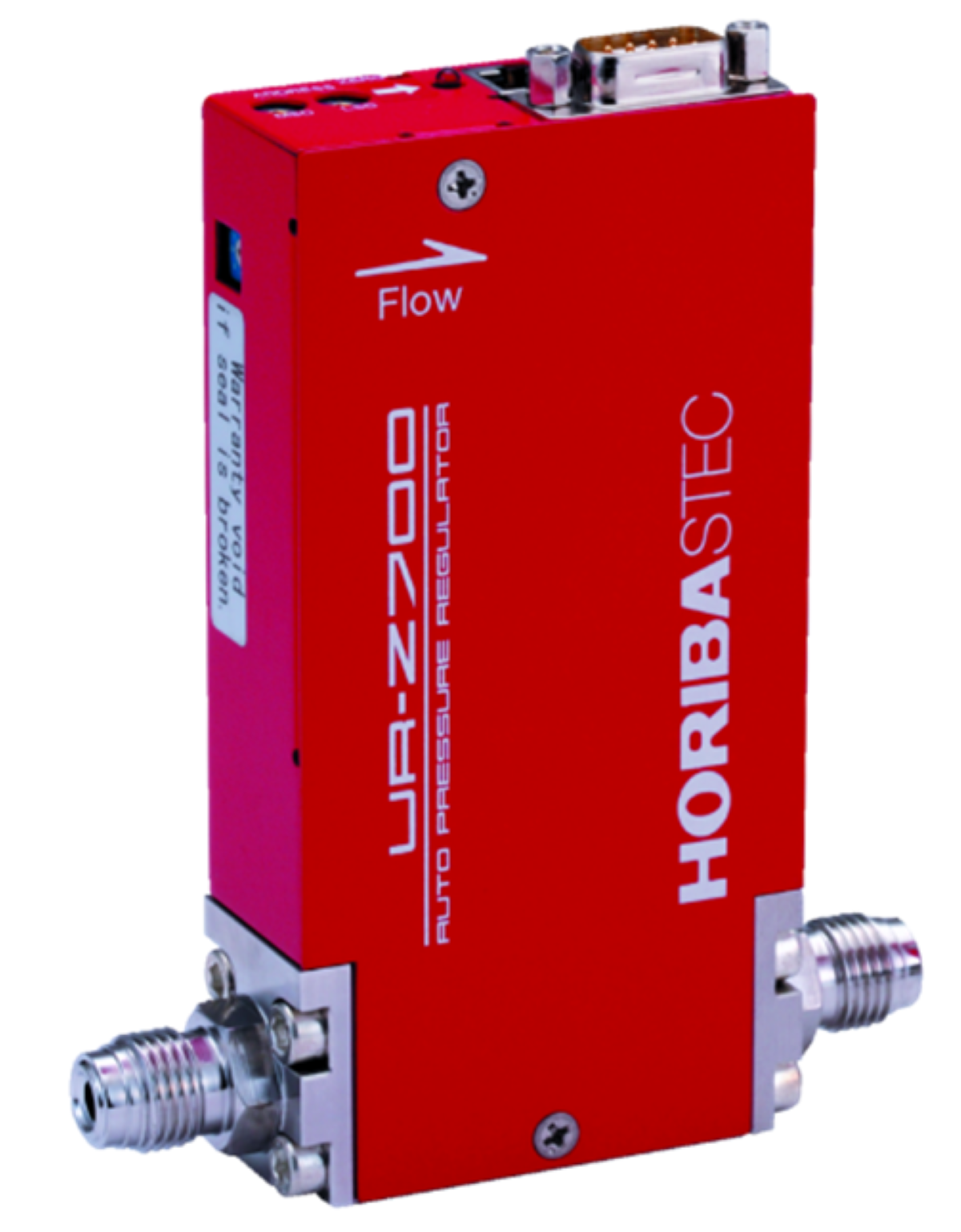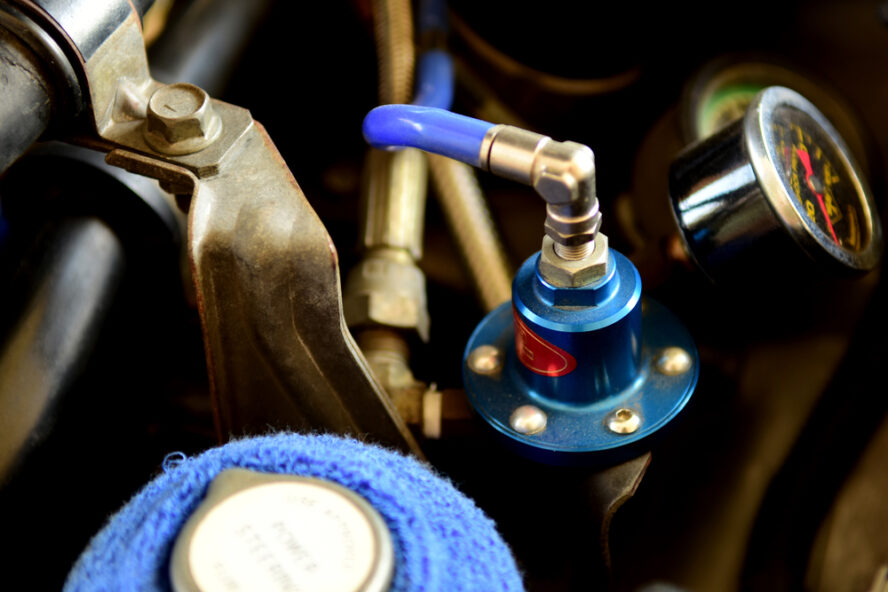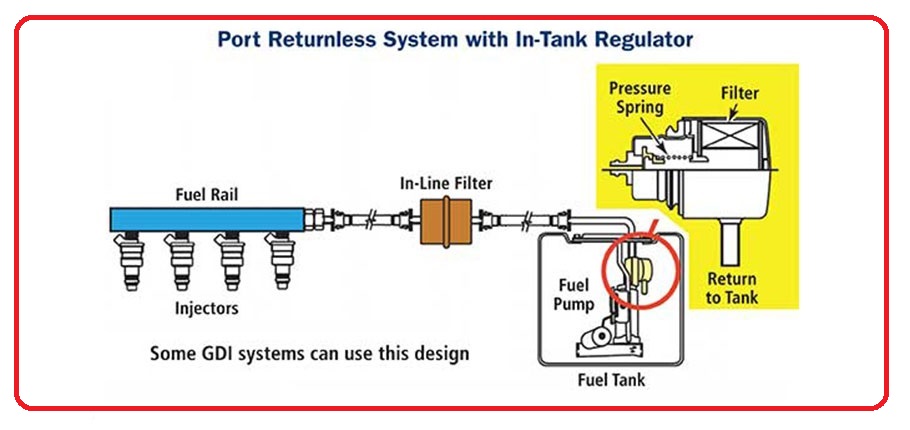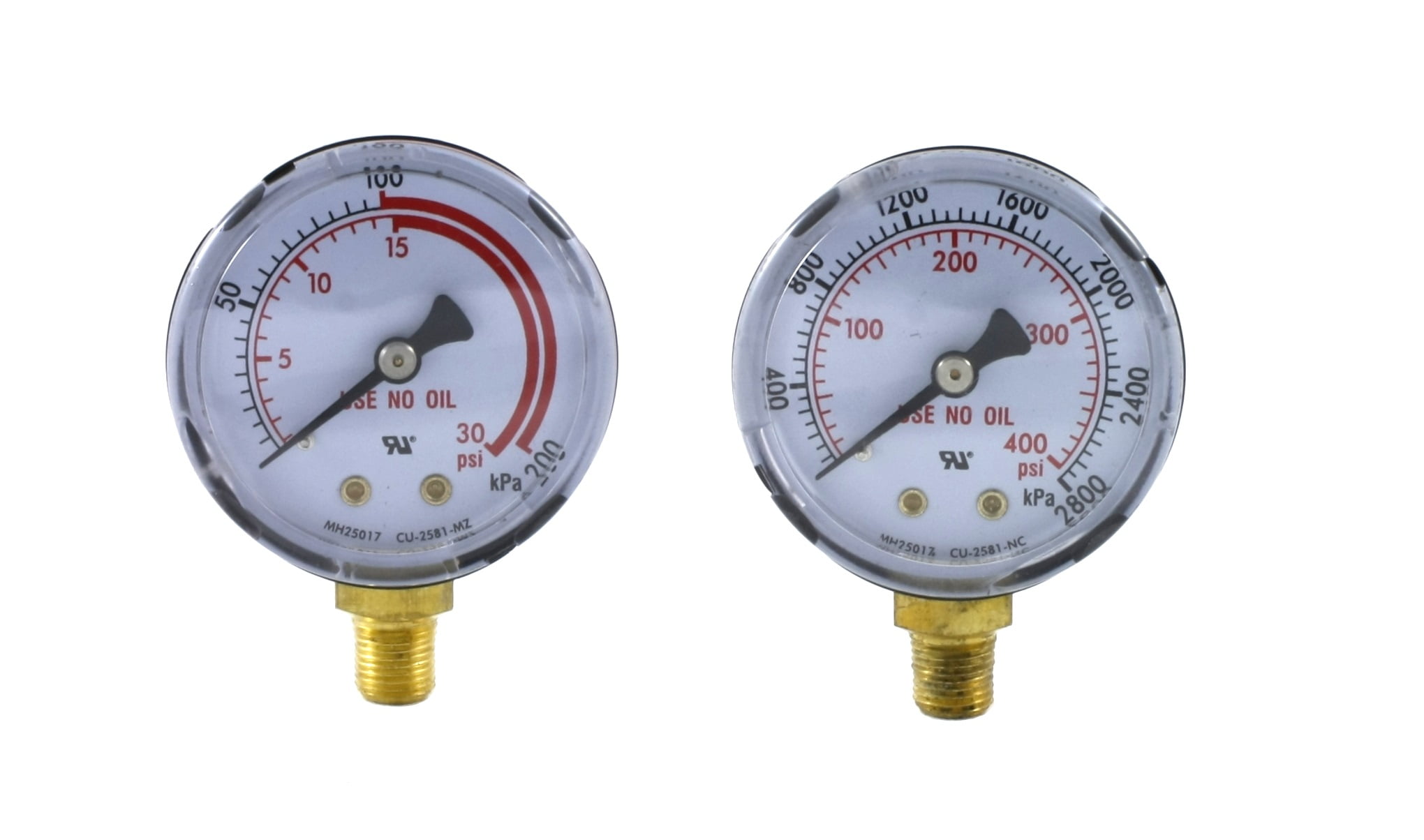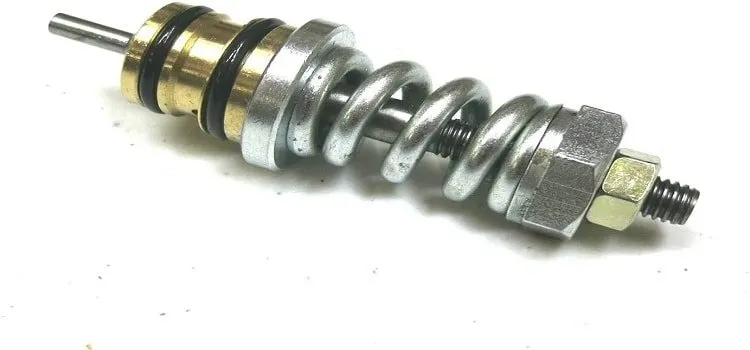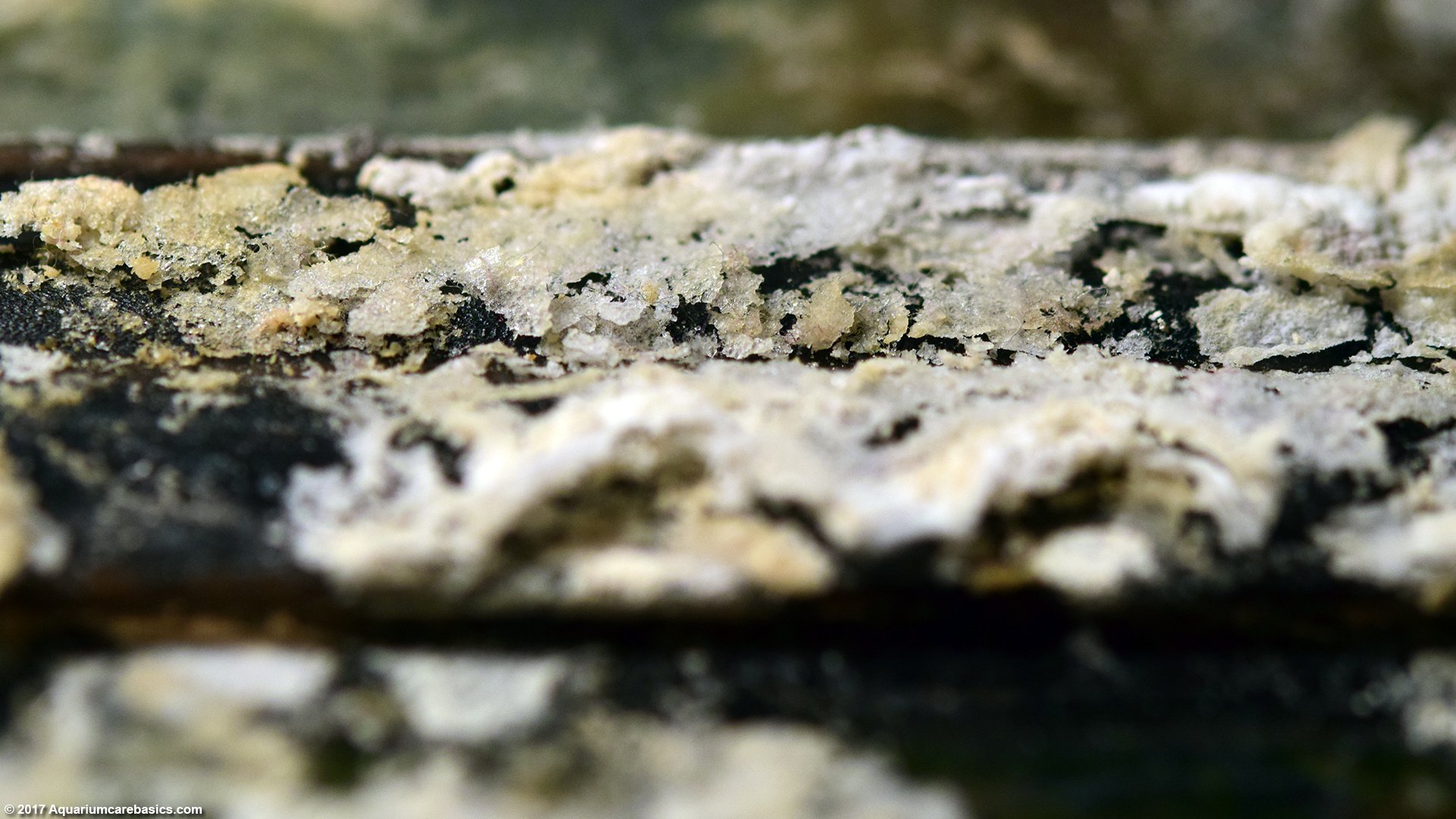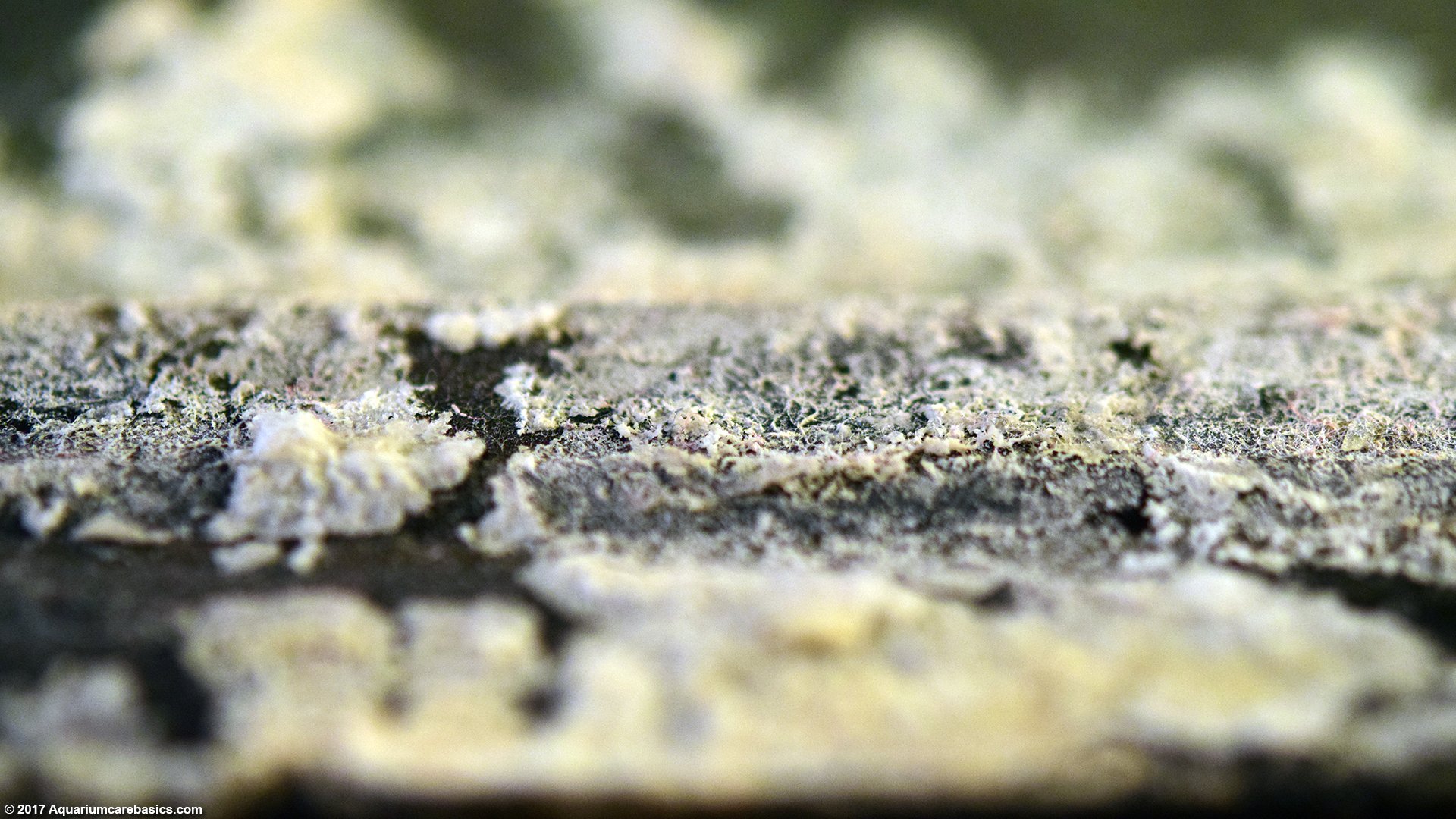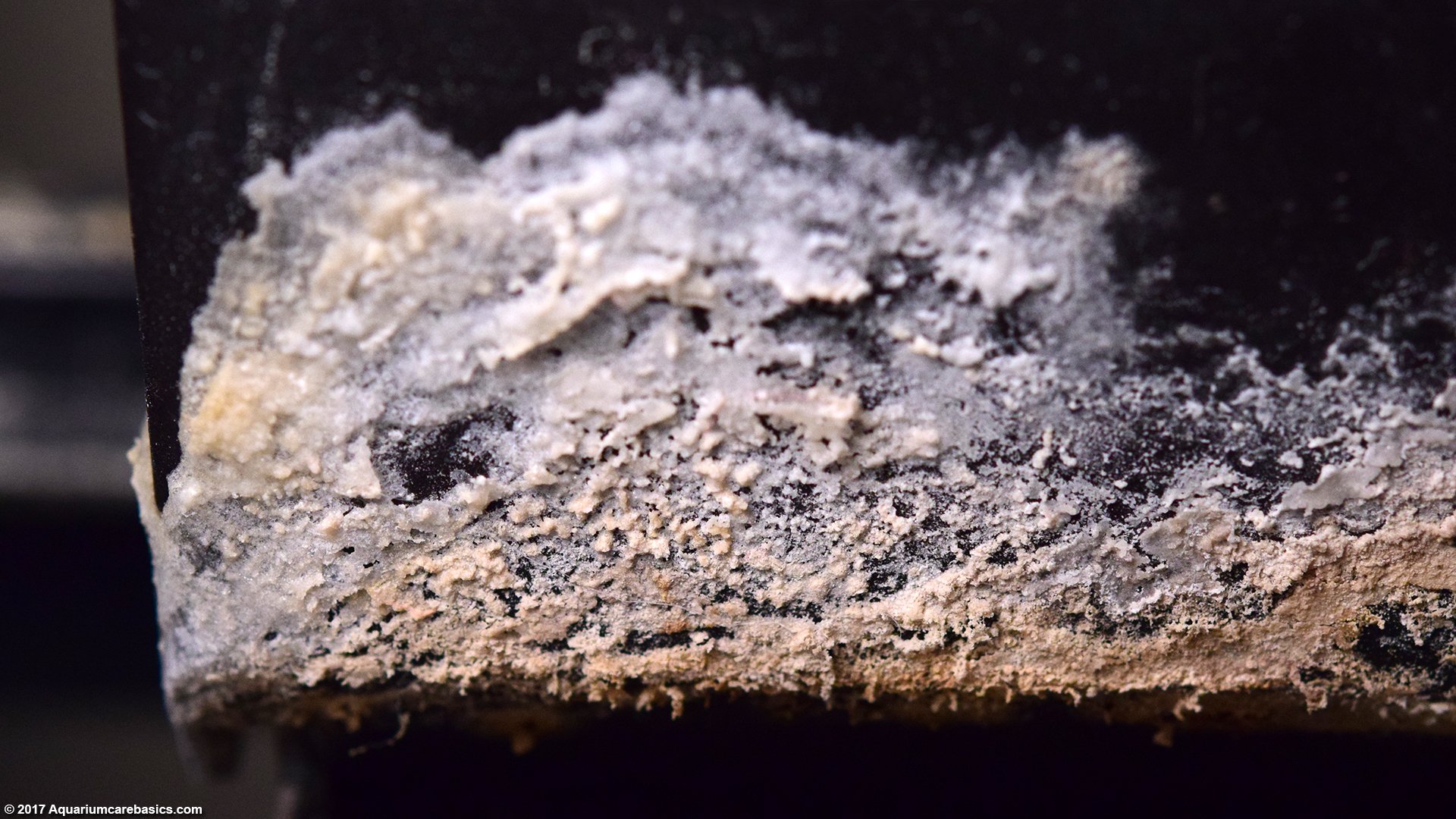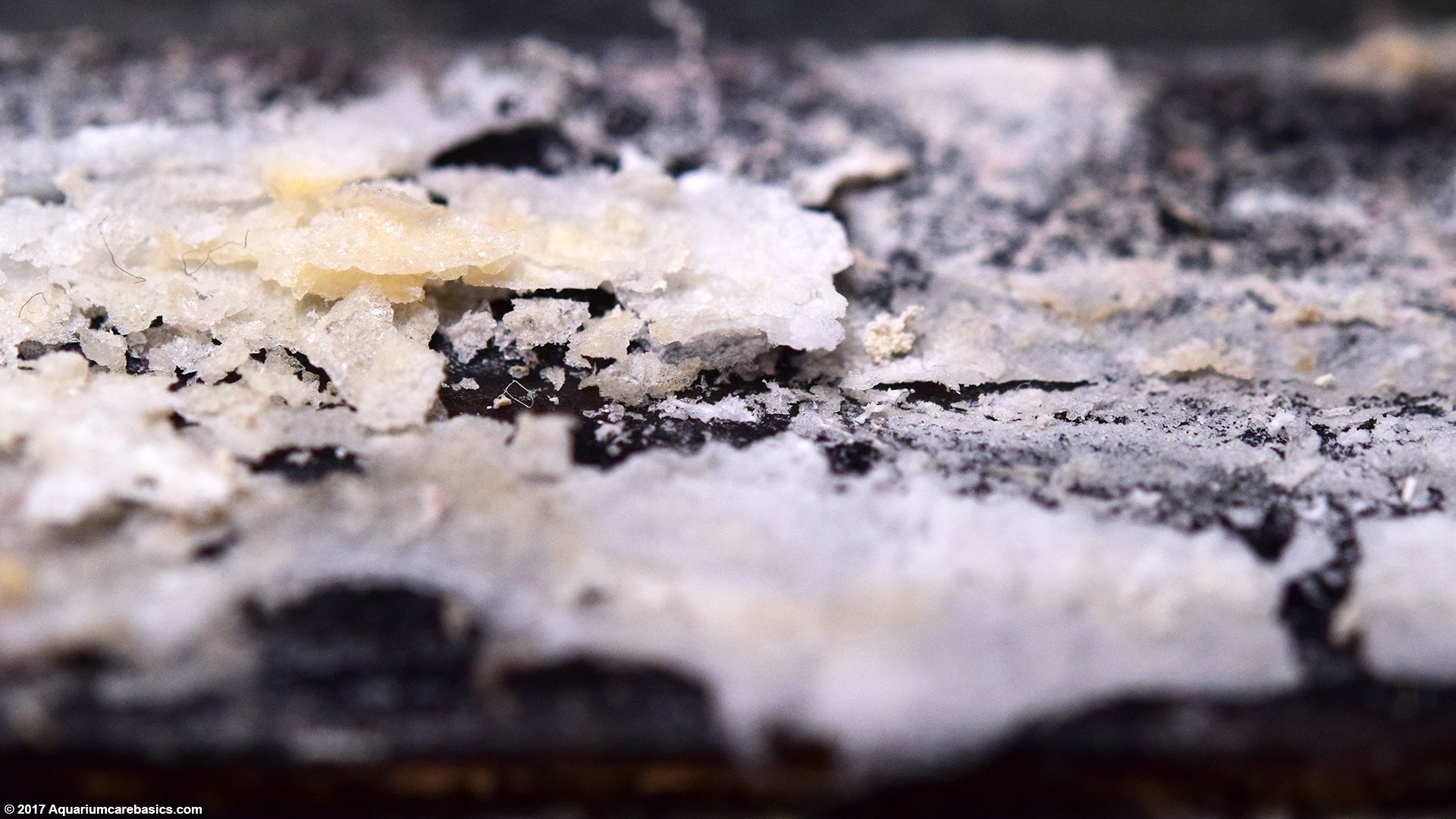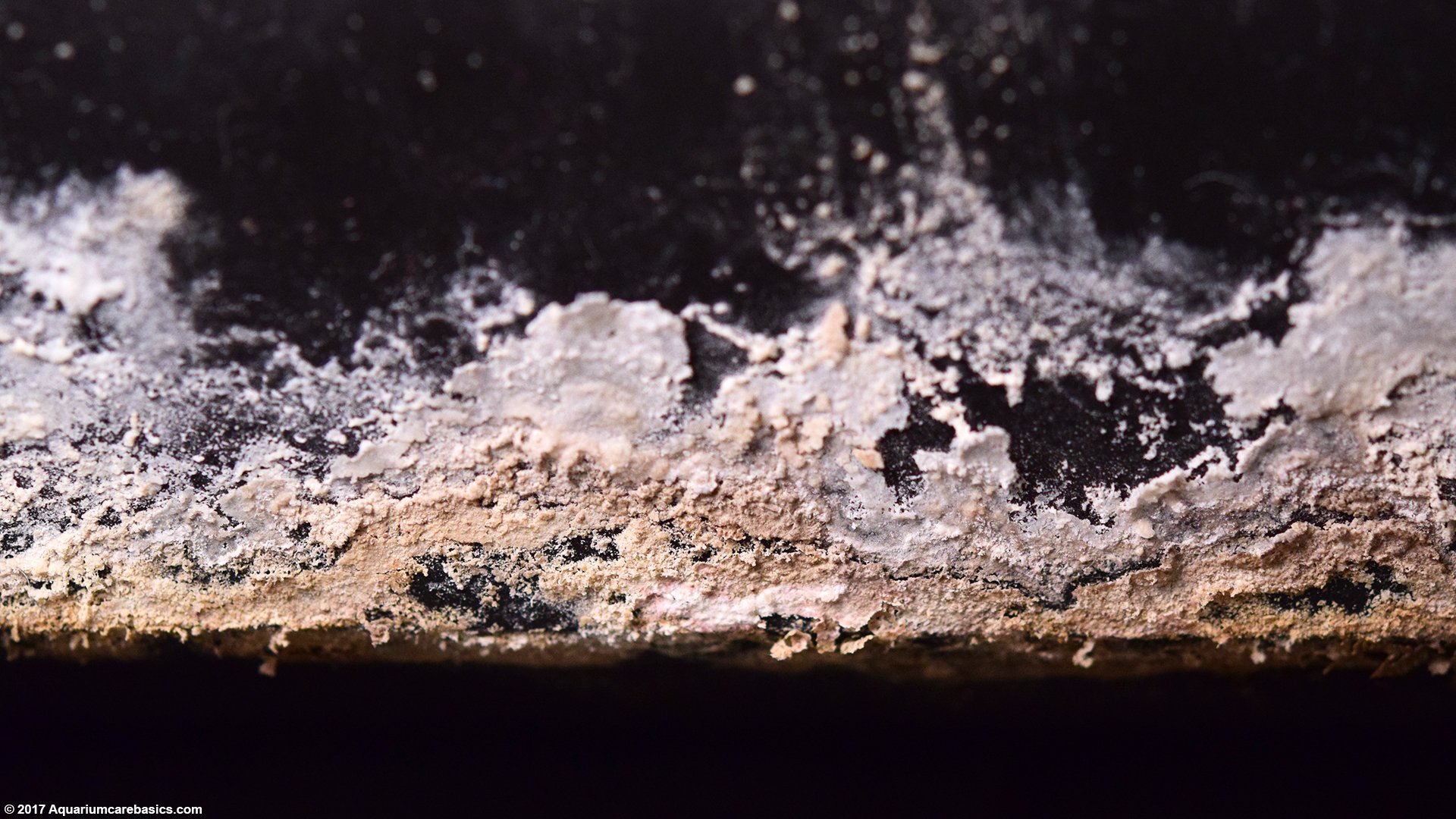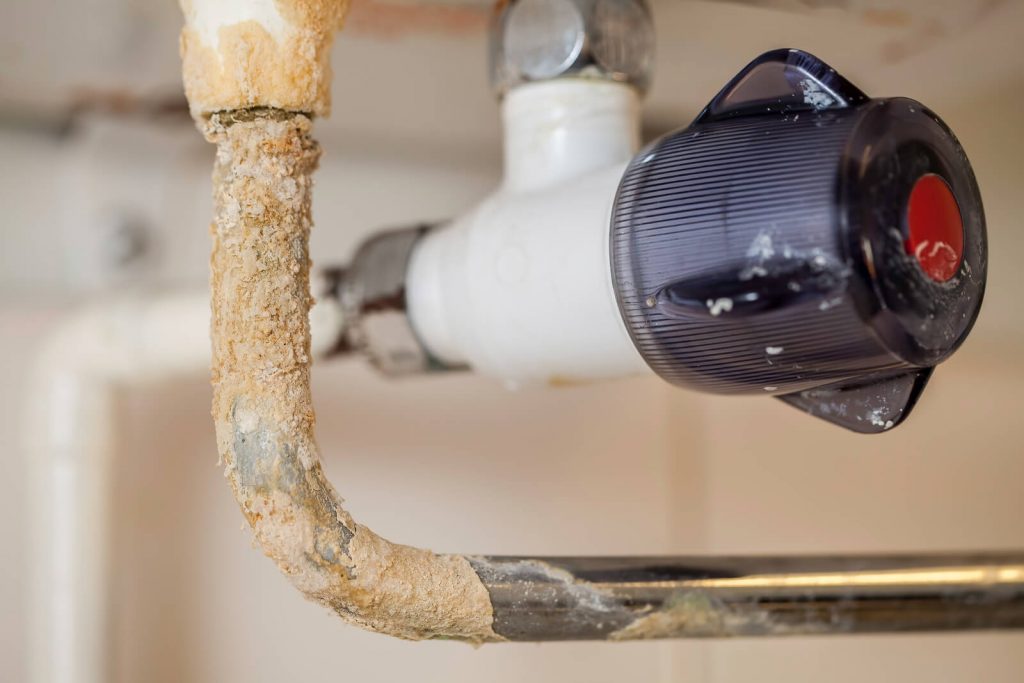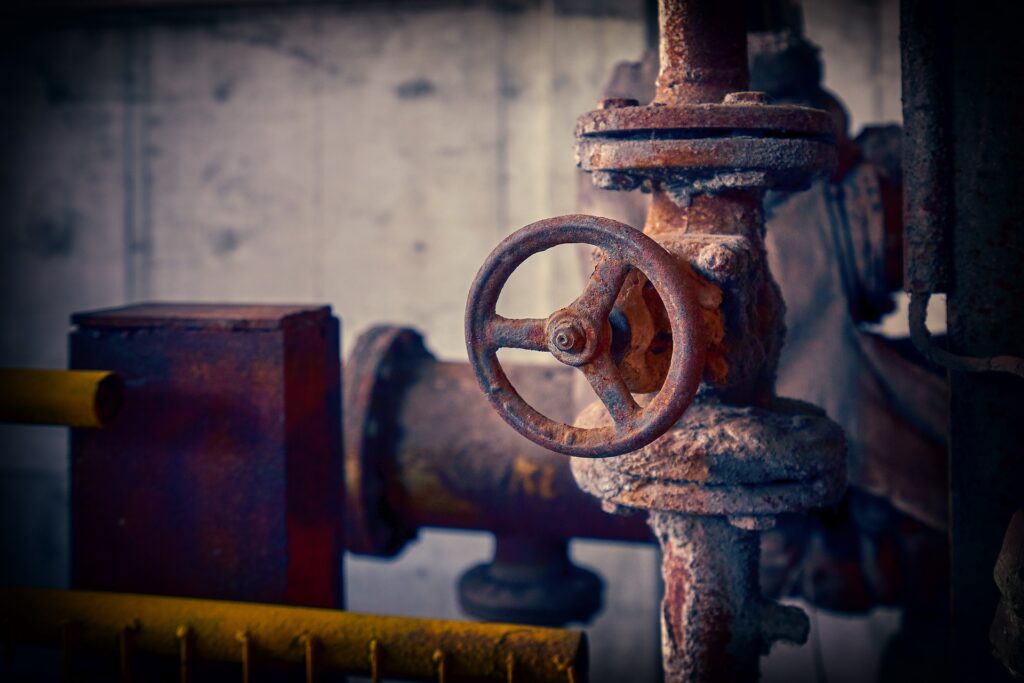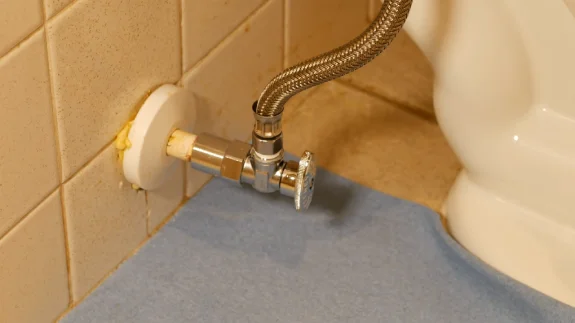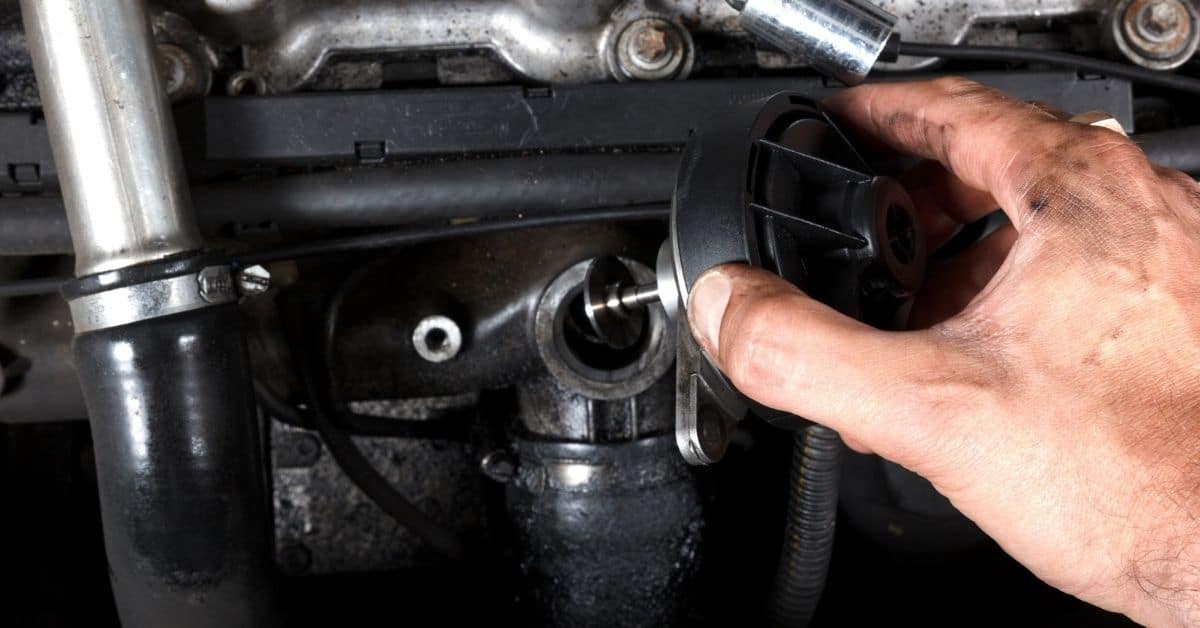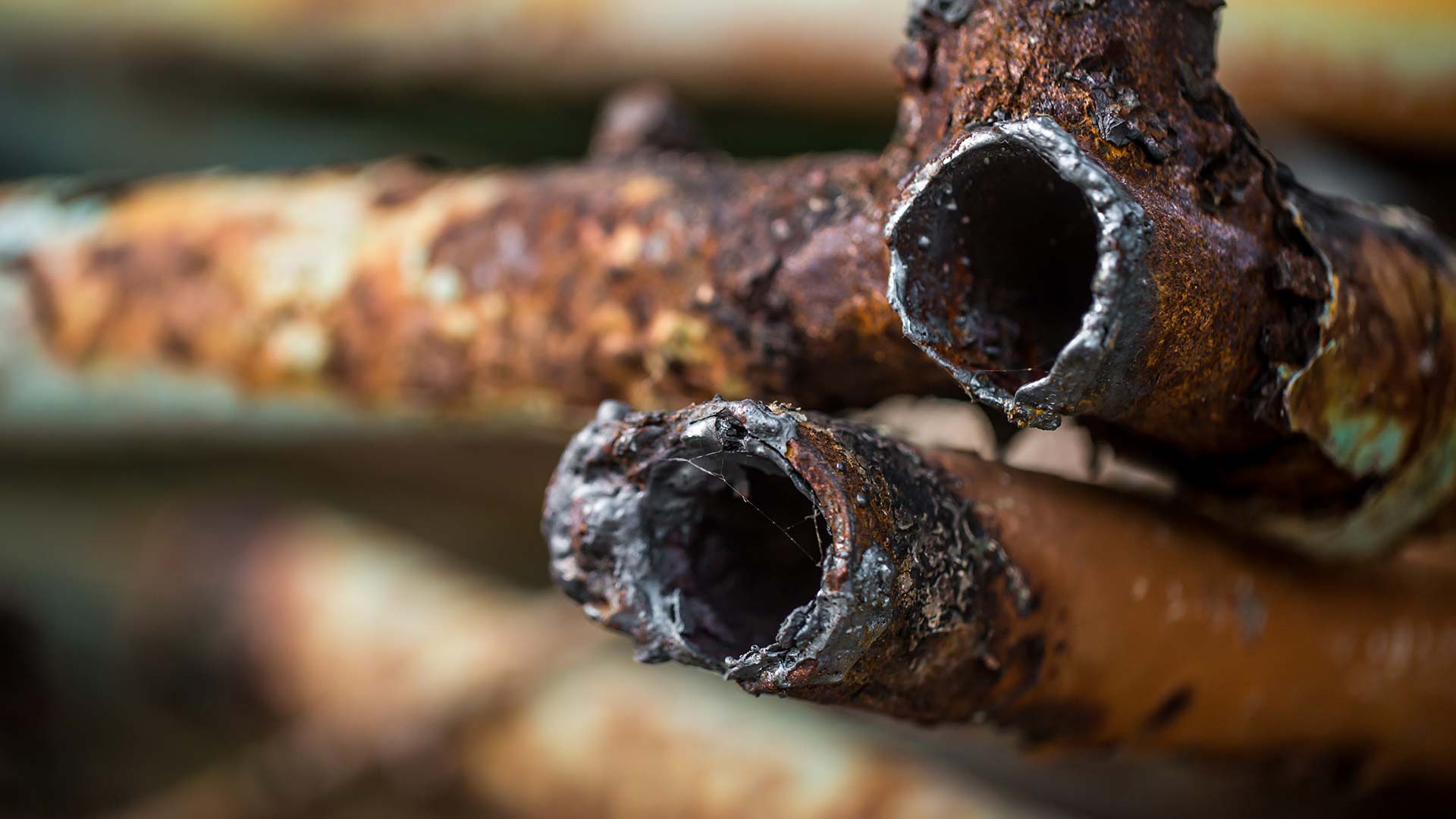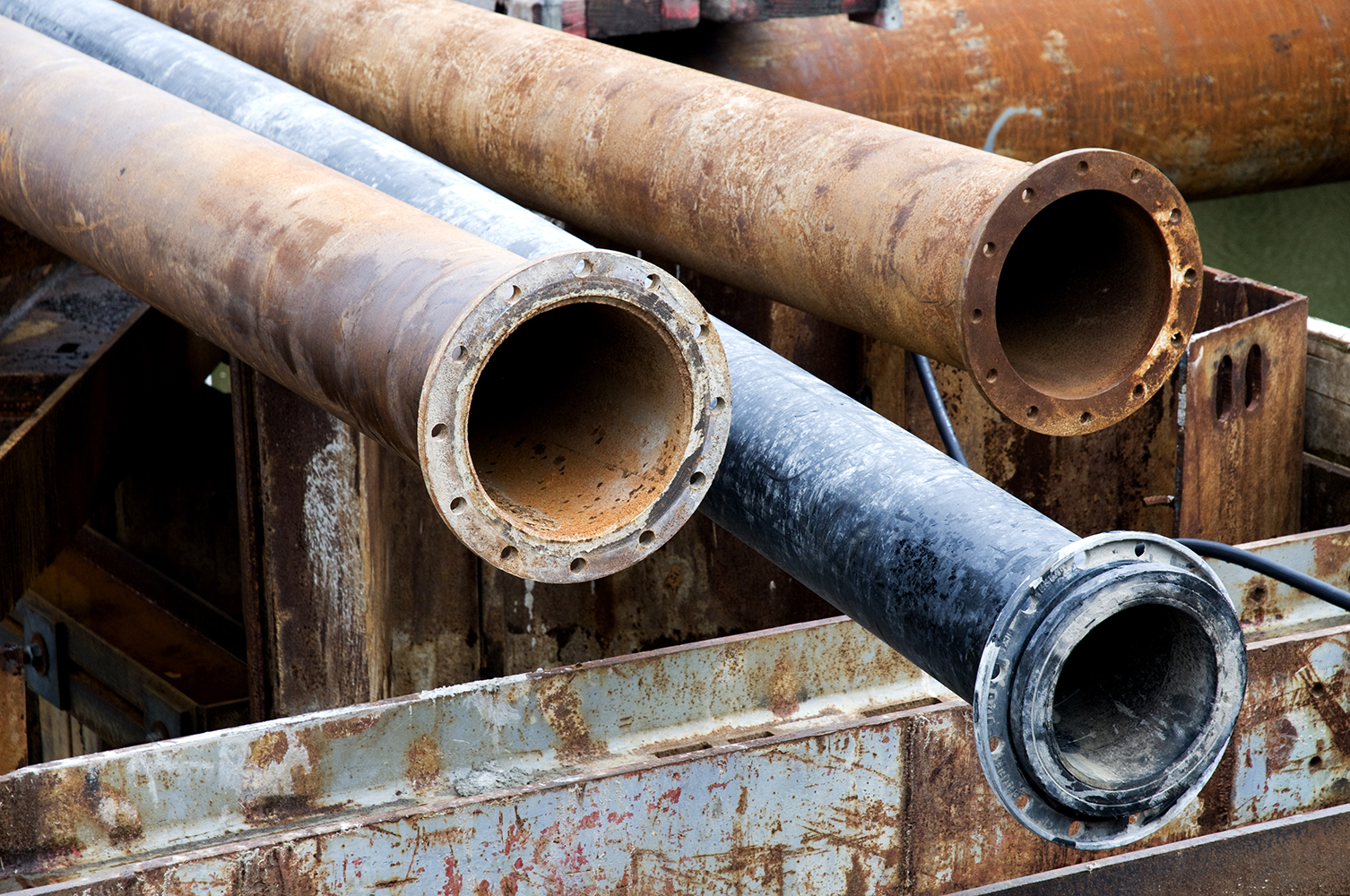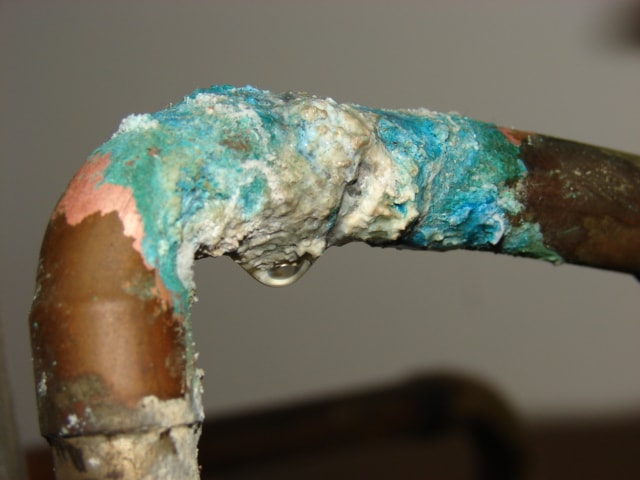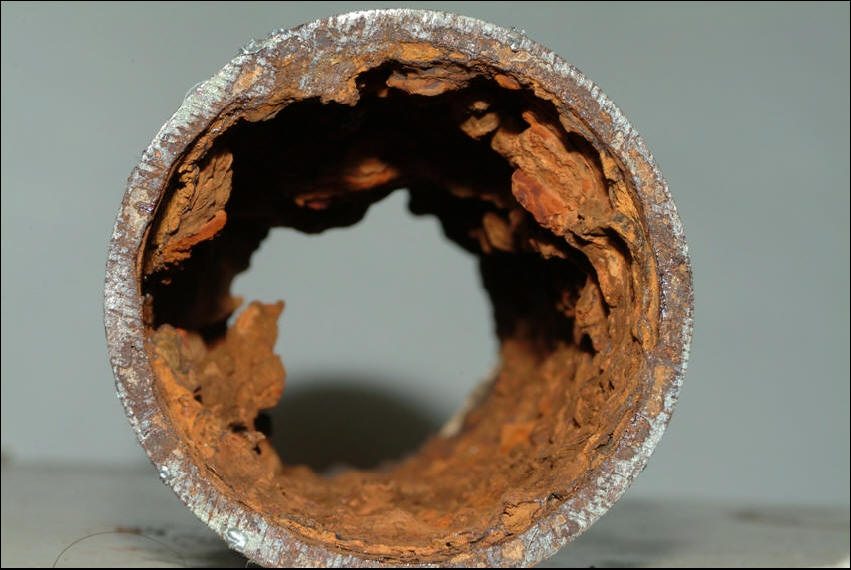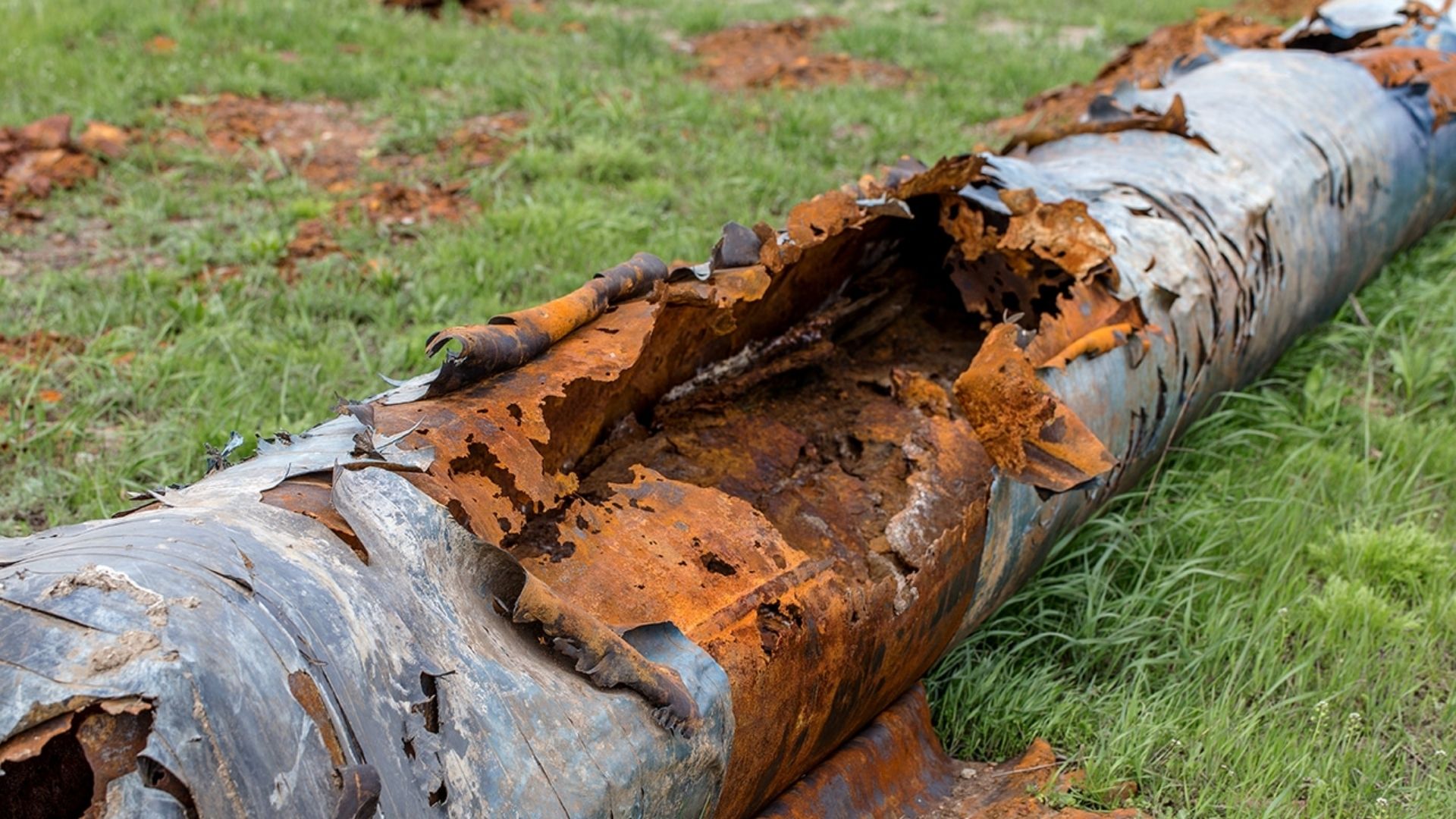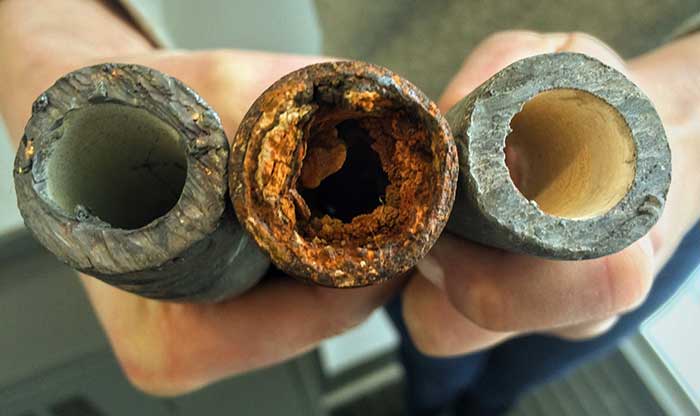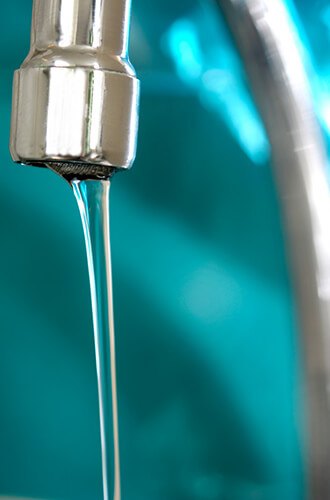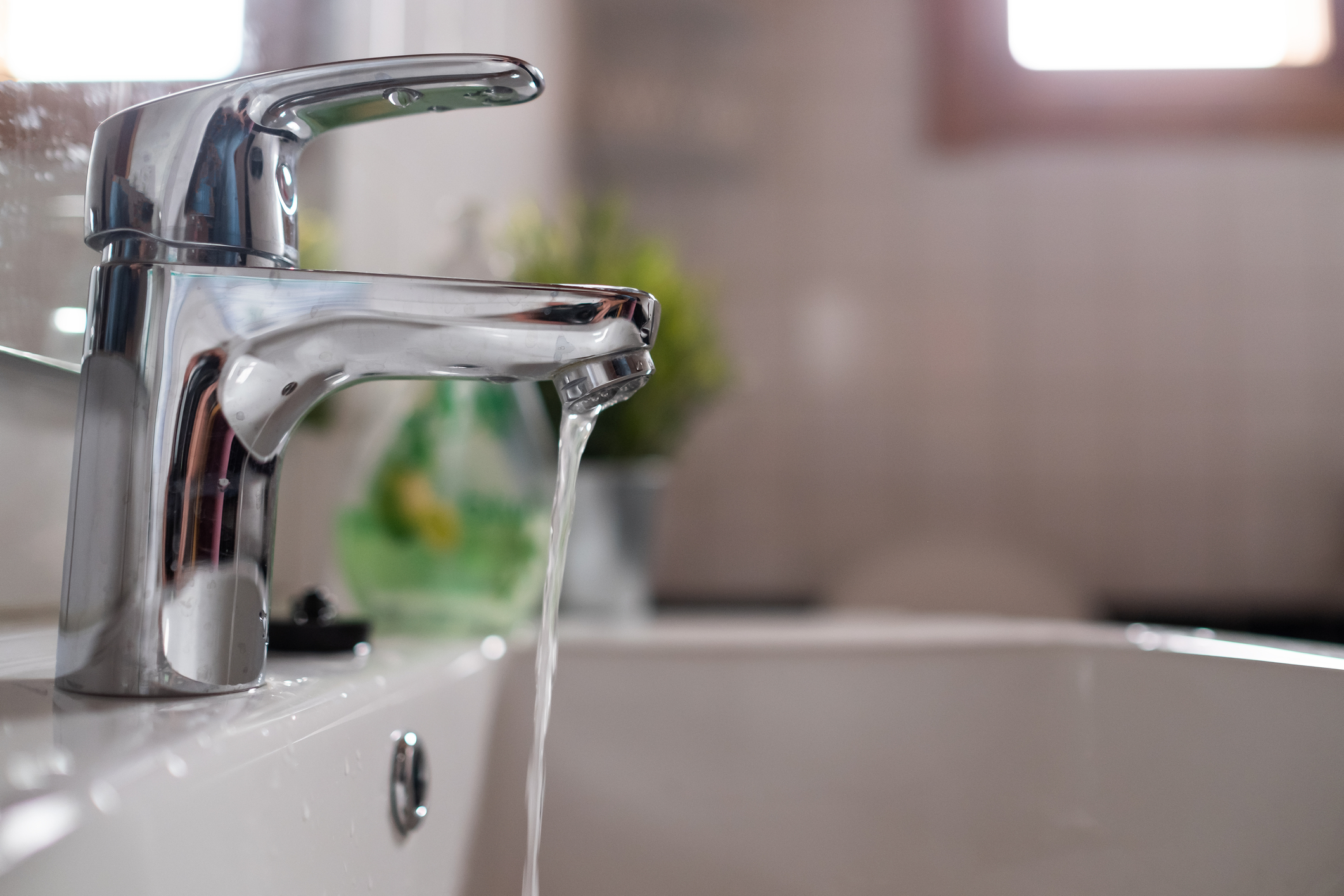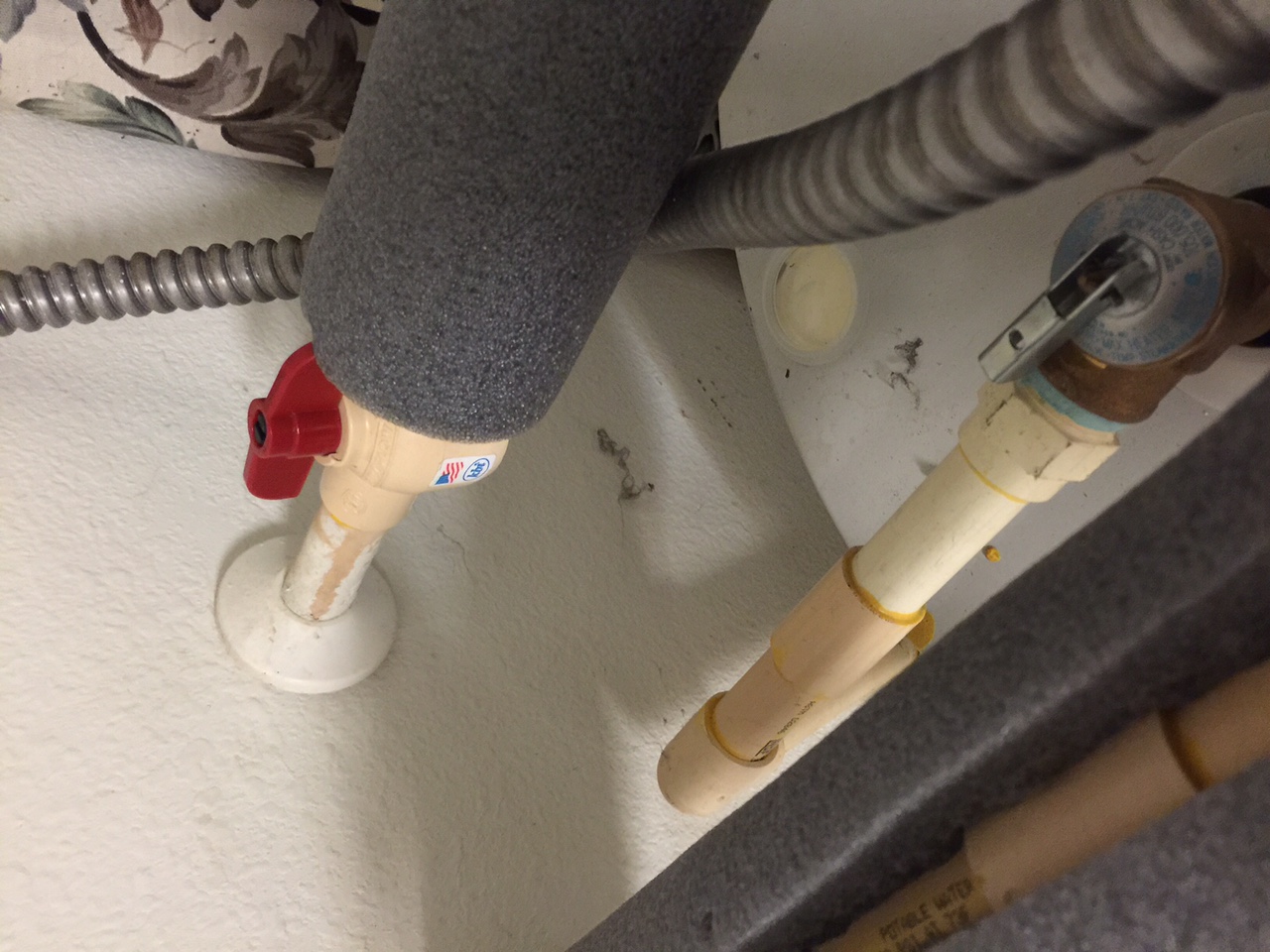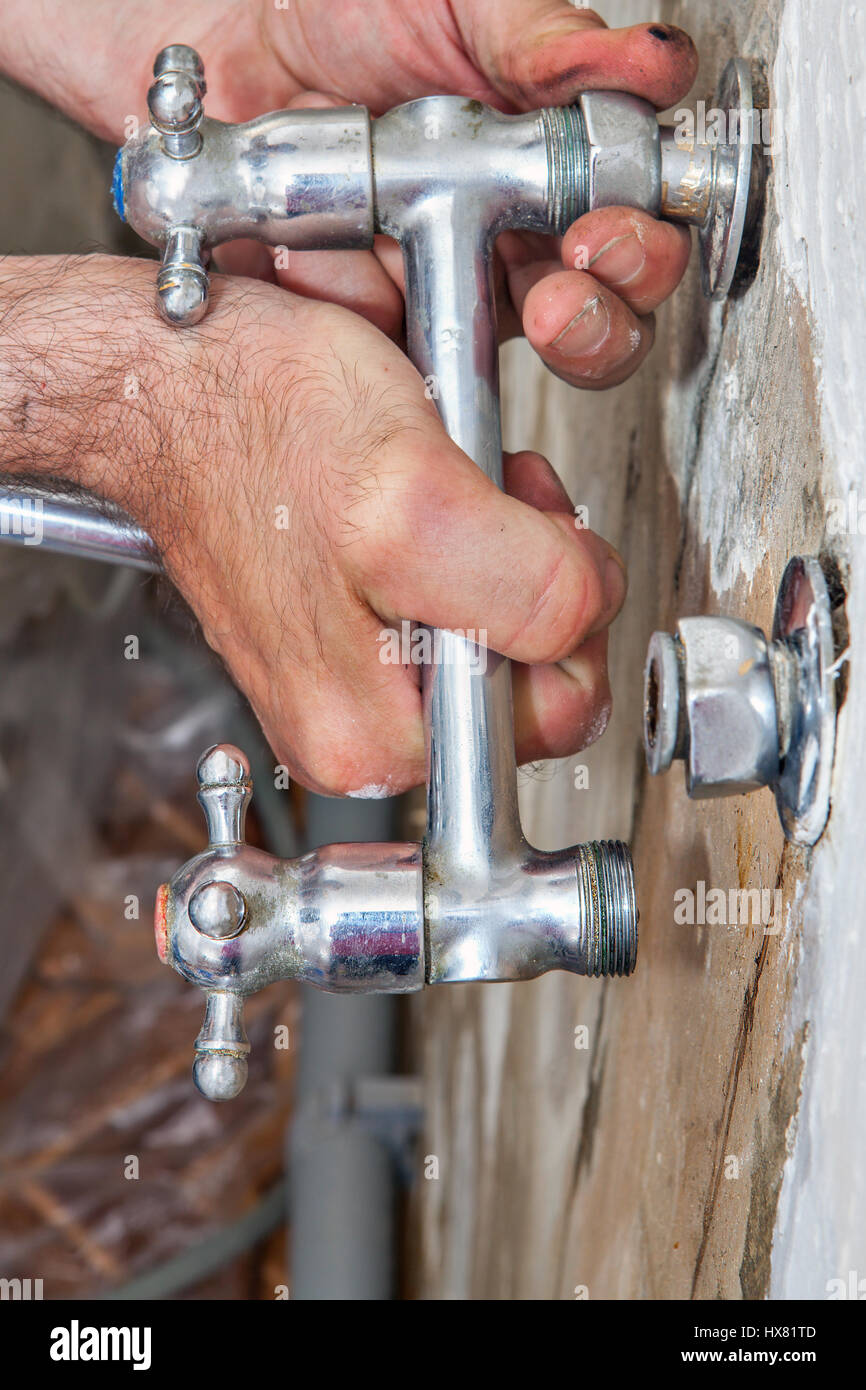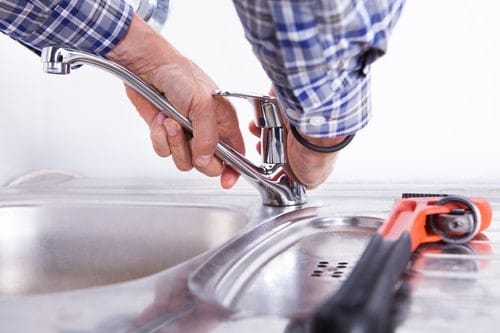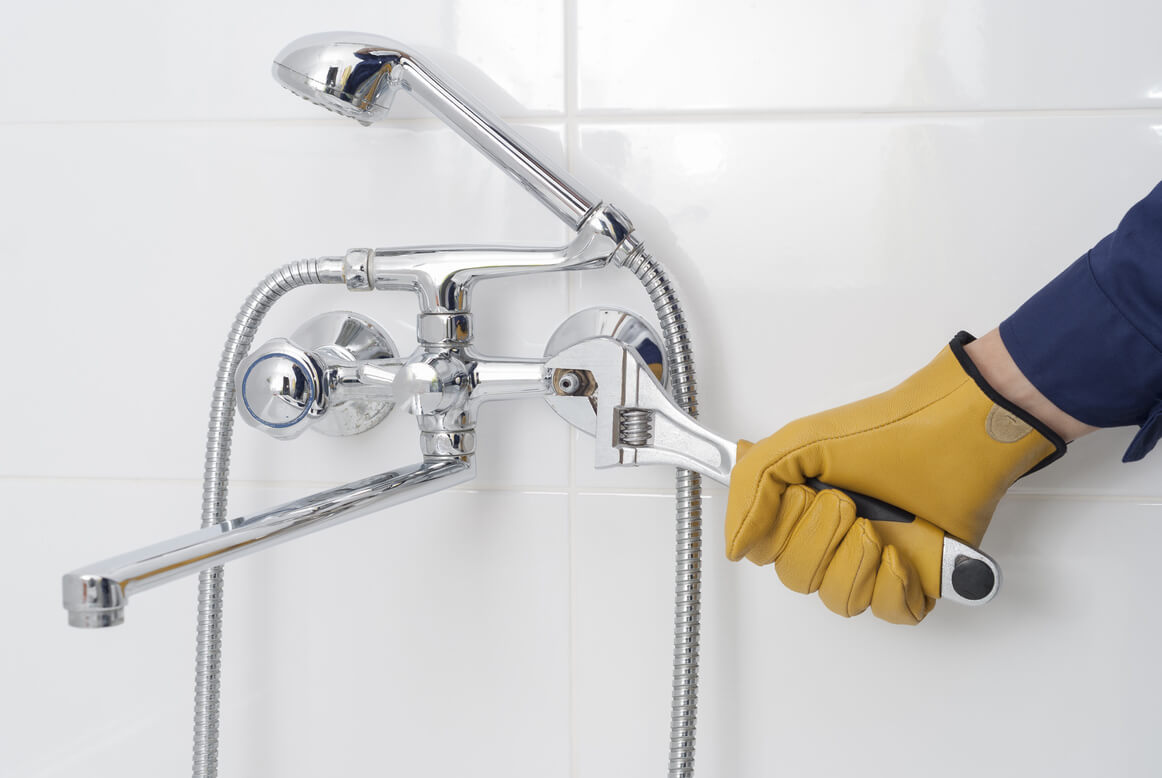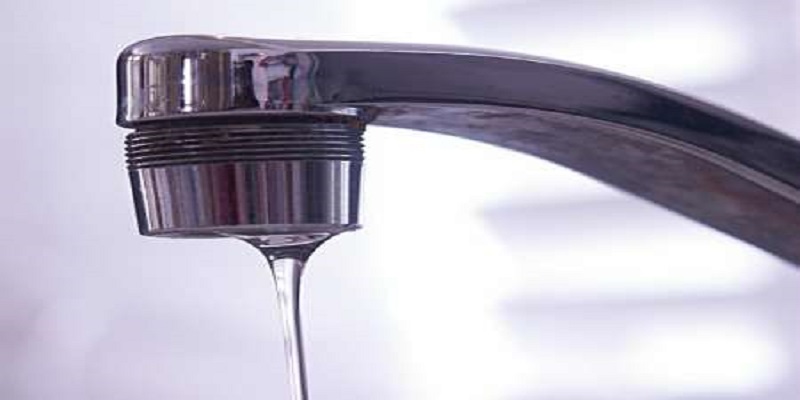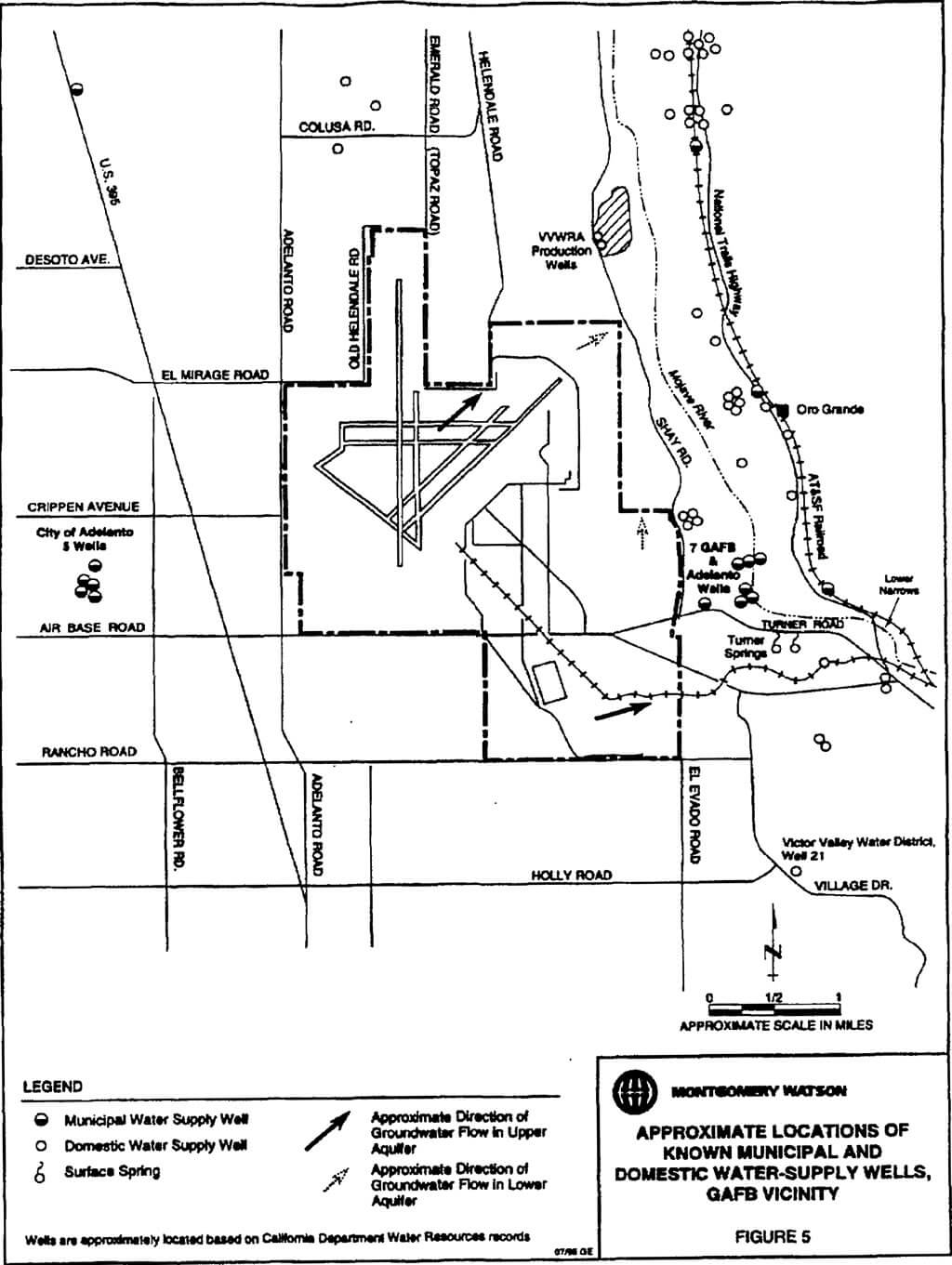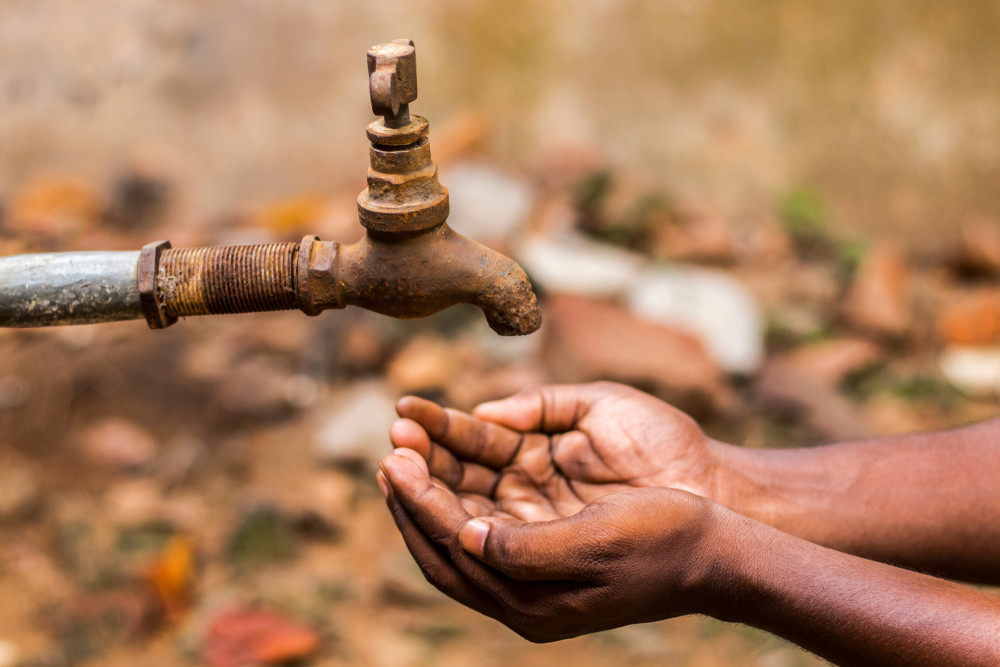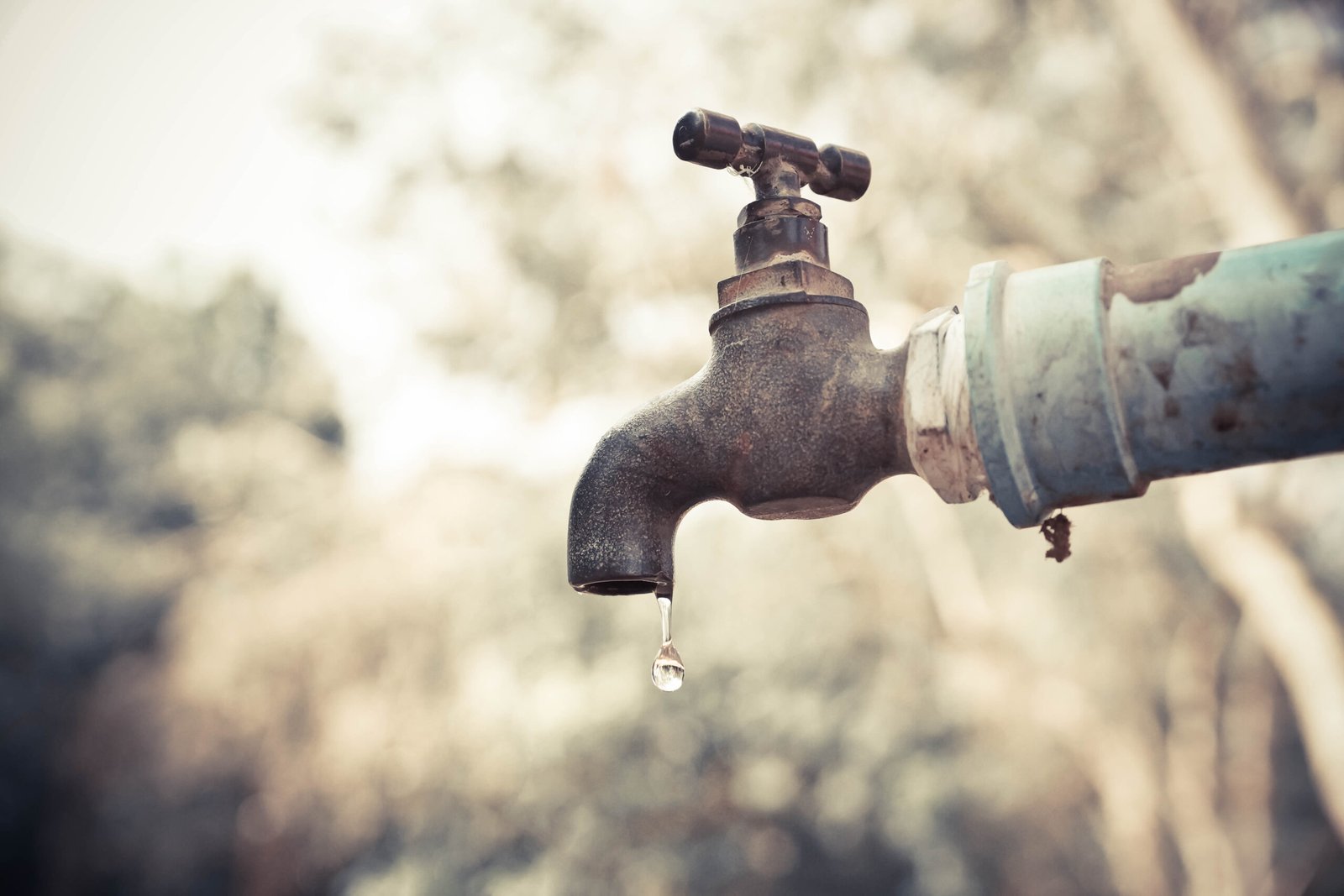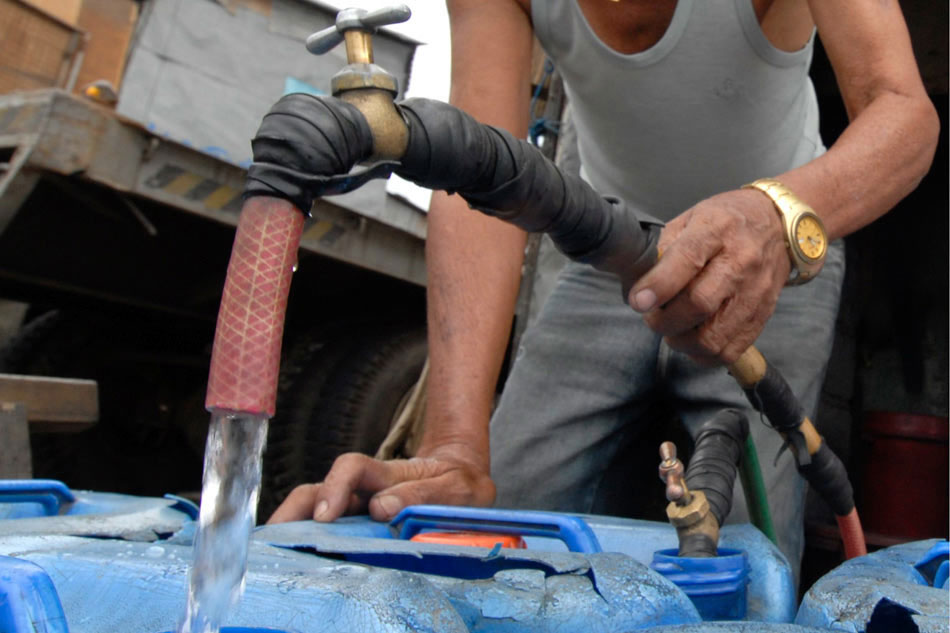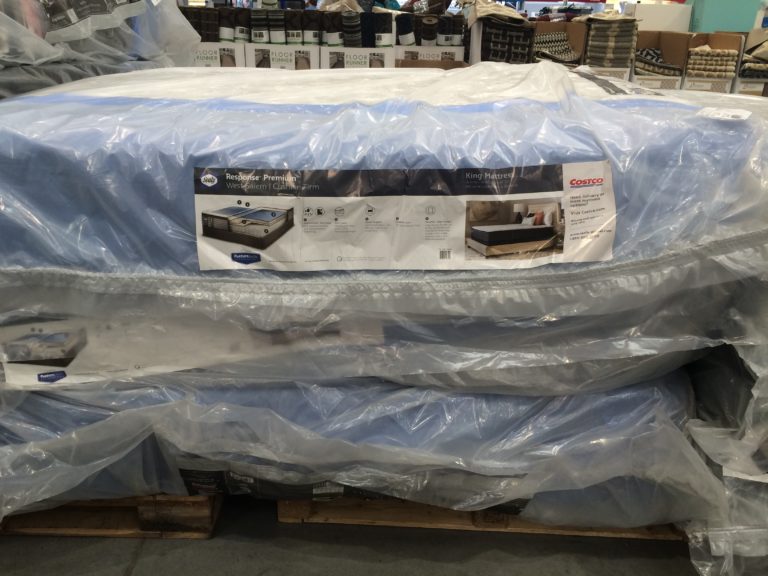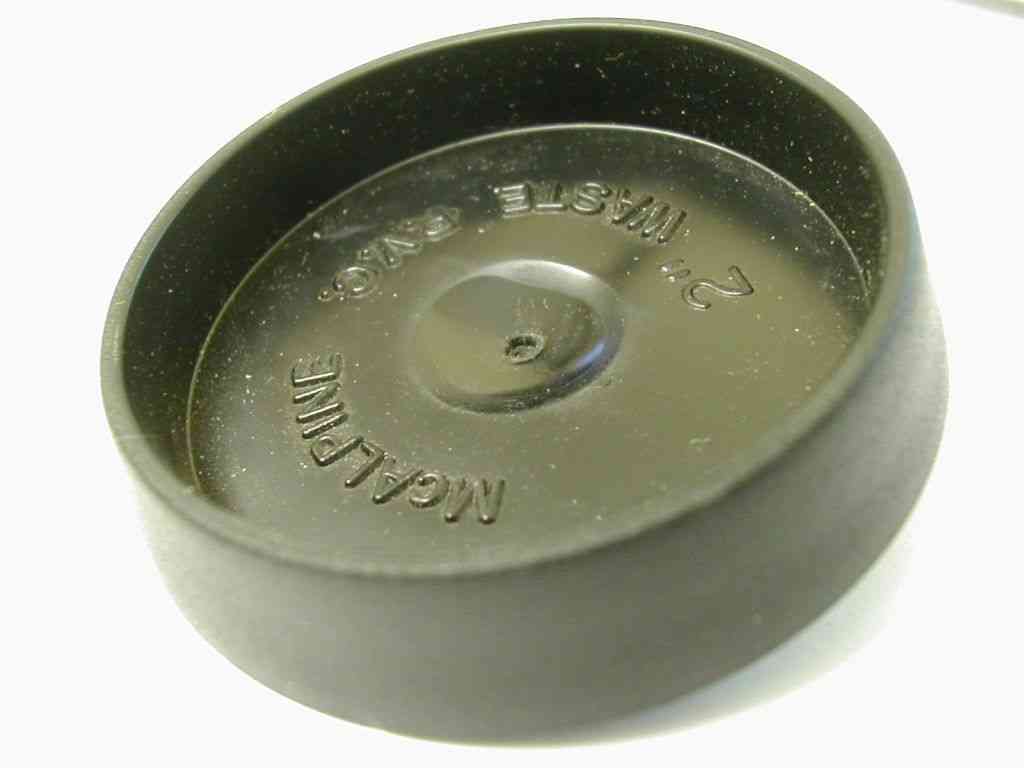One of the most common causes of low water pressure in the kitchen sink is a clogged aerator. The aerator is a small piece located at the end of the faucet spout that helps to regulate water flow by adding air to the water stream. Over time, minerals and debris can build up in the aerator, causing it to become clogged. This restricts the flow of water, resulting in low water pressure. Regularly cleaning and maintaining the aerator can help prevent this issue. Clogged aerator
If you notice a decrease in water pressure in your kitchen sink, it could be due to leaking pipes. Even small leaks can significantly impact water pressure, causing it to decrease. This is because water is being diverted away from the faucet, resulting in less water reaching the sink. It is important to address any leaking pipes as soon as possible to avoid further damage and maintain good water pressure. Leaking pipes
The water pressure in your kitchen sink is controlled by a pressure regulator, which is typically located near the main water line in your home. If the pressure regulator becomes faulty or malfunctions, it can cause a decrease in water pressure. This is usually an issue with older homes or if the pressure regulator has not been properly maintained. In this case, it is best to call a professional plumber to replace the pressure regulator and restore proper water pressure. Faulty pressure regulator
Minerals such as calcium and magnesium can build up in your pipes over time, causing them to become clogged and decreasing water pressure. This is especially common in areas with hard water. The buildup can also occur in the faucet aerator, showerheads, and other fixtures, leading to reduced water pressure. Regularly cleaning and descaling your pipes and fixtures can help prevent this issue. Mineral buildup
The shut-off valve is responsible for controlling the flow of water to your kitchen sink. If this valve becomes faulty or damaged, it can result in low water pressure. This is usually an easy fix, as the shut-off valve can simply be replaced. If you notice a decrease in water pressure in your kitchen sink, check the shut-off valve to see if it is functioning properly. Faulty shut-off valve
In rare cases, a water main break can cause low water pressure in your kitchen sink. This can happen if there is a break or leak in the main water line that supplies water to your home. If you suspect this to be the case, contact your water provider to report the issue and have it addressed as soon as possible. Water main break
Over time, pipes can become corroded and deteriorate, leading to decreased water pressure. This is more common in older homes or areas with hard water. If you notice a significant decrease in water pressure in your kitchen sink, it is possible that your pipes may be corroded and in need of replacement. Corroded pipes
If you experience low water pressure not just in your kitchen sink, but throughout your entire house, it could be due to a problem with the main water line. This could be caused by a water main break, a clogged main line, or a faulty pressure regulator. It is best to contact a professional plumber to diagnose and address the issue. Low water pressure in entire house
If your kitchen sink faucet is old or worn out, it can lead to low water pressure. This is because the internal components of the faucet may be damaged or clogged, hindering the flow of water. If you notice a decrease in water pressure and your faucet is old, it may be time to replace it with a new one. Faulty faucet
In rare cases, low water pressure in your kitchen sink may be due to an issue with the main water supply. This could be caused by a water outage, maintenance work being done on the water lines, or a problem with the municipal water system. If you suspect this to be the case, contact your water provider for more information. Water supply issue
Additional Causes of Low Water Pressure in the Kitchen Sink

Blocked or Damaged Pipes
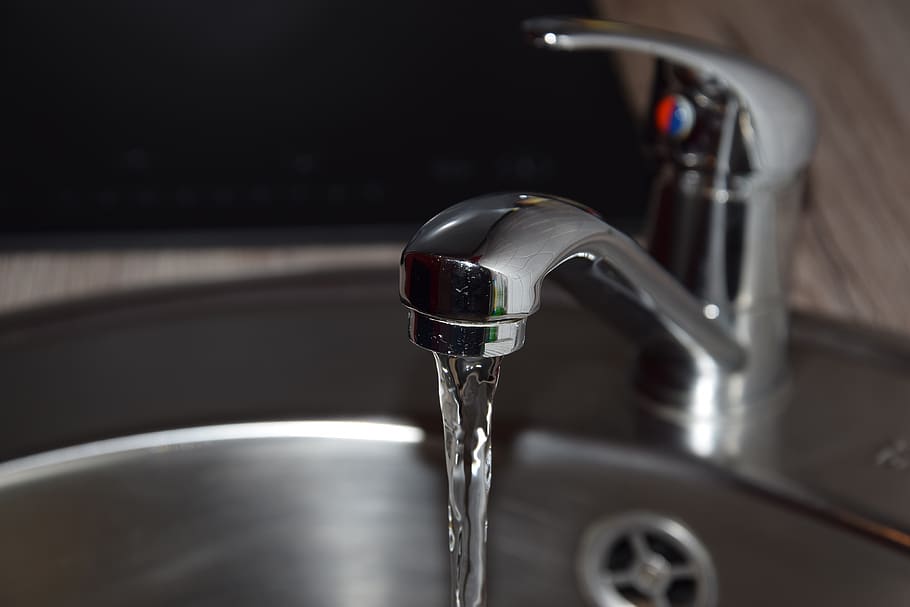 One common cause of low water pressure in the kitchen sink is blocked or damaged pipes. Over time, pipes can become clogged with debris, such as food particles, grease, and mineral deposits. This build-up can restrict the flow of water, leading to low pressure. Additionally, pipes can become damaged due to corrosion or age, causing leaks or cracks that can also reduce water pressure. If you suspect that your kitchen sink's pipes may be the cause of your low water pressure, it is best to have a professional plumber inspect and repair them.
One common cause of low water pressure in the kitchen sink is blocked or damaged pipes. Over time, pipes can become clogged with debris, such as food particles, grease, and mineral deposits. This build-up can restrict the flow of water, leading to low pressure. Additionally, pipes can become damaged due to corrosion or age, causing leaks or cracks that can also reduce water pressure. If you suspect that your kitchen sink's pipes may be the cause of your low water pressure, it is best to have a professional plumber inspect and repair them.
Valve Malfunction
 Another possible cause of low water pressure in the kitchen sink is a malfunctioning valve. Valves control the flow of water in your plumbing system, and if they are not working correctly, it can result in low water pressure. One common issue with valves is sediment build-up, which can prevent them from fully opening or closing. This can be resolved by cleaning or replacing the valve.
Another possible cause of low water pressure in the kitchen sink is a malfunctioning valve. Valves control the flow of water in your plumbing system, and if they are not working correctly, it can result in low water pressure. One common issue with valves is sediment build-up, which can prevent them from fully opening or closing. This can be resolved by cleaning or replacing the valve.
Water Pressure Regulator
:max_bytes(150000):strip_icc()/home-water-pressure-problems-2718730-3d3b6ee75946443eba2b19138c3dc830.png) A water pressure regulator is a device that controls the overall water pressure in your home. If this device is not functioning correctly, it can result in low water pressure throughout your house, including the kitchen sink. A malfunctioning water pressure regulator may need to be adjusted or replaced by a professional plumber to restore proper water pressure.
A water pressure regulator is a device that controls the overall water pressure in your home. If this device is not functioning correctly, it can result in low water pressure throughout your house, including the kitchen sink. A malfunctioning water pressure regulator may need to be adjusted or replaced by a professional plumber to restore proper water pressure.
Water Supply Issues
 In some cases, the cause of low water pressure in the kitchen sink may be due to issues with the water supply. This could be due to a problem with the main water line, such as a leak or damage, or a disruption in the municipal water supply. If you notice a sudden drop in water pressure, it is best to contact your water provider to check for any known issues.
In some cases, the cause of low water pressure in the kitchen sink may be due to issues with the water supply. This could be due to a problem with the main water line, such as a leak or damage, or a disruption in the municipal water supply. If you notice a sudden drop in water pressure, it is best to contact your water provider to check for any known issues.
Conclusion
 Overall, there are various causes of low water pressure in the kitchen sink, ranging from minor issues to more significant problems. If you are experiencing low water pressure, it is best to have a professional plumber inspect your plumbing system to determine the root cause and make any necessary repairs. By addressing the underlying issue, you can ensure that your kitchen sink and other areas of your home have adequate water pressure for your daily needs.
Overall, there are various causes of low water pressure in the kitchen sink, ranging from minor issues to more significant problems. If you are experiencing low water pressure, it is best to have a professional plumber inspect your plumbing system to determine the root cause and make any necessary repairs. By addressing the underlying issue, you can ensure that your kitchen sink and other areas of your home have adequate water pressure for your daily needs.

:max_bytes(150000):strip_icc()/ac2-56a73c5c5f9b58b7d0e81846.jpg)
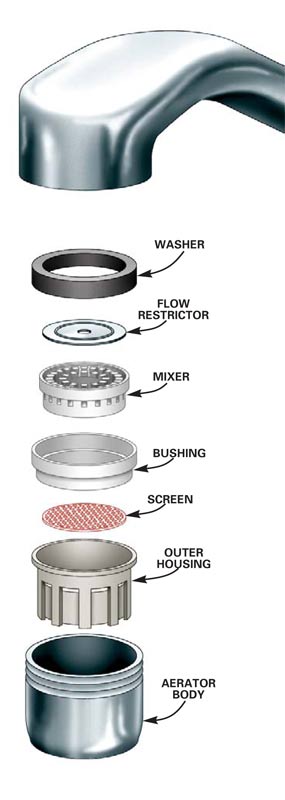
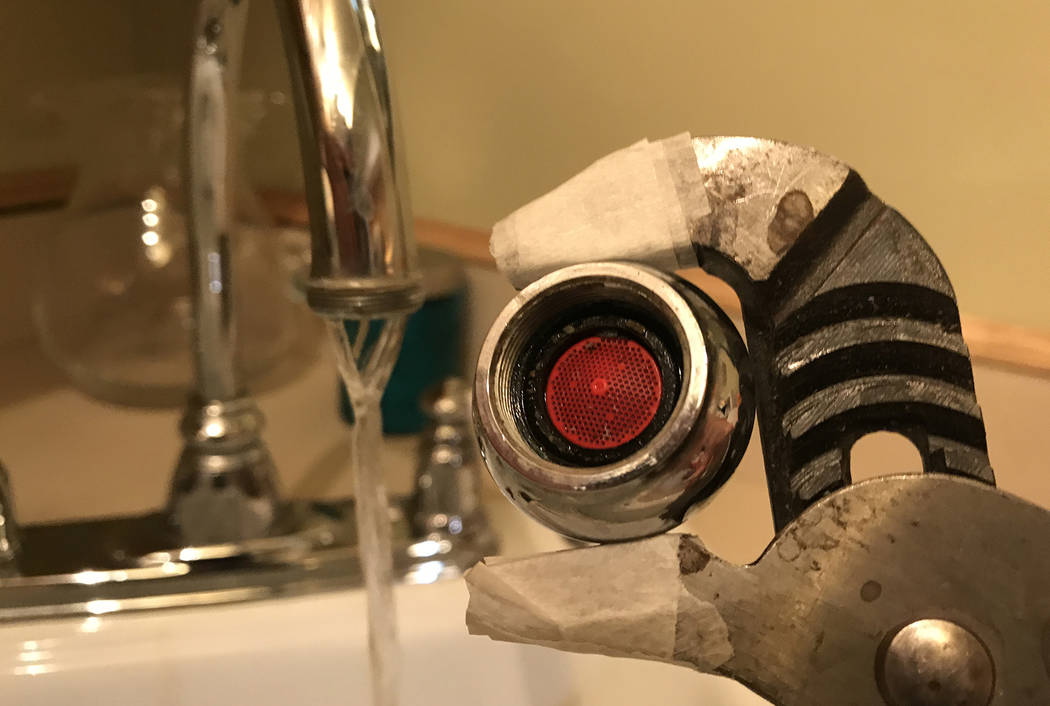

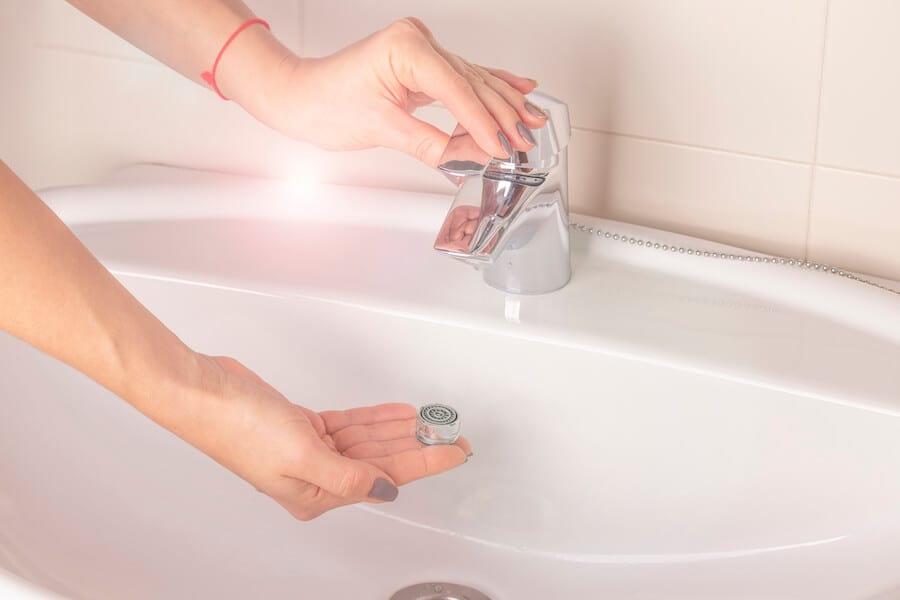



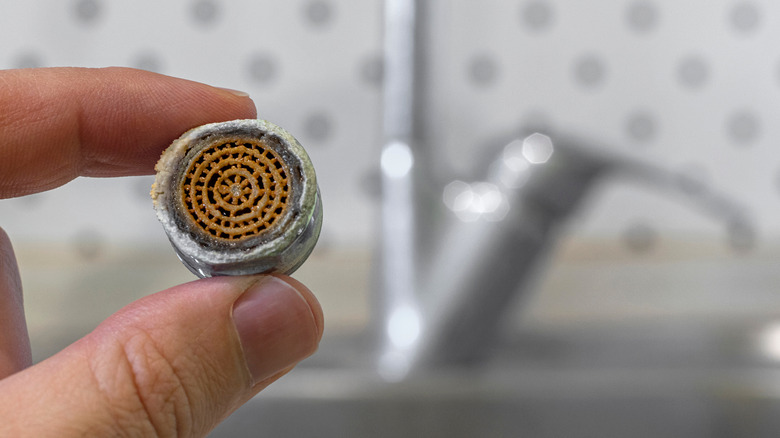
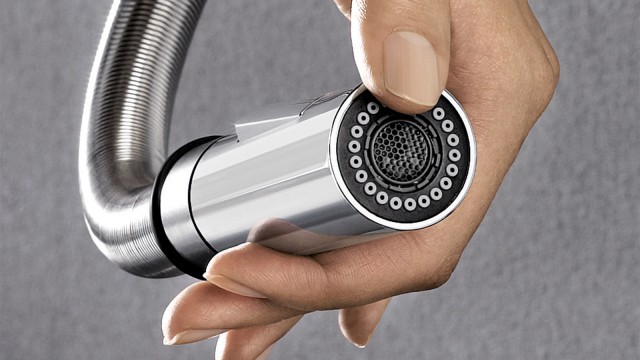




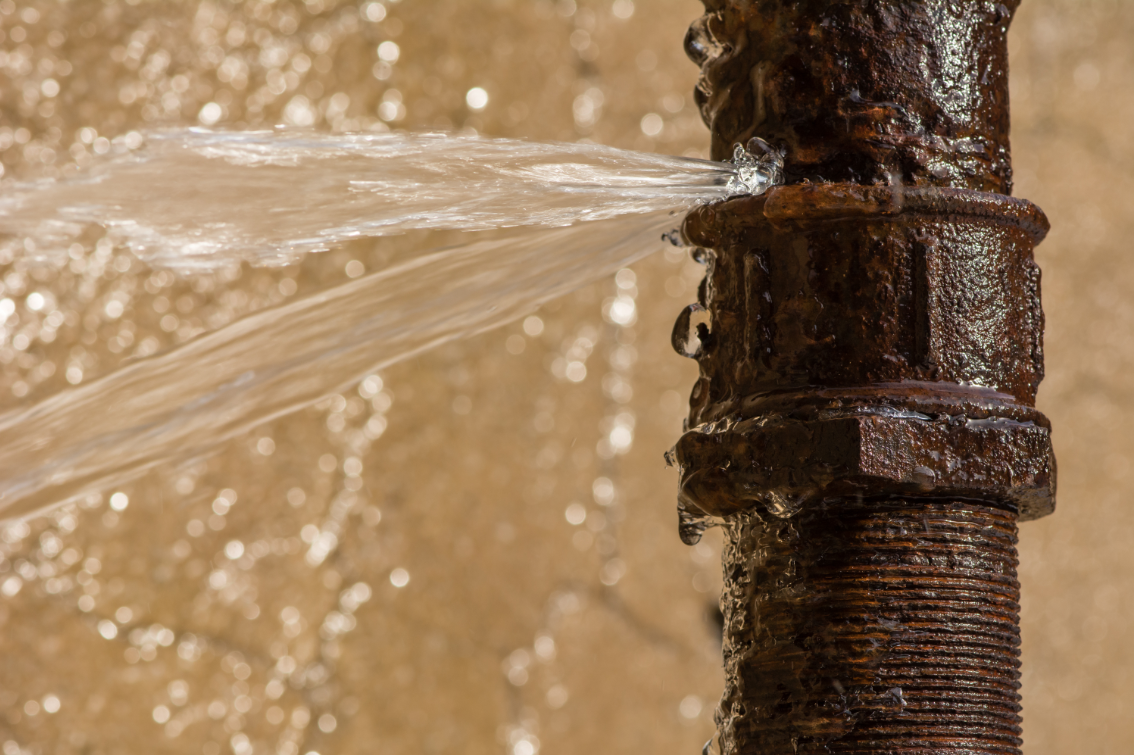
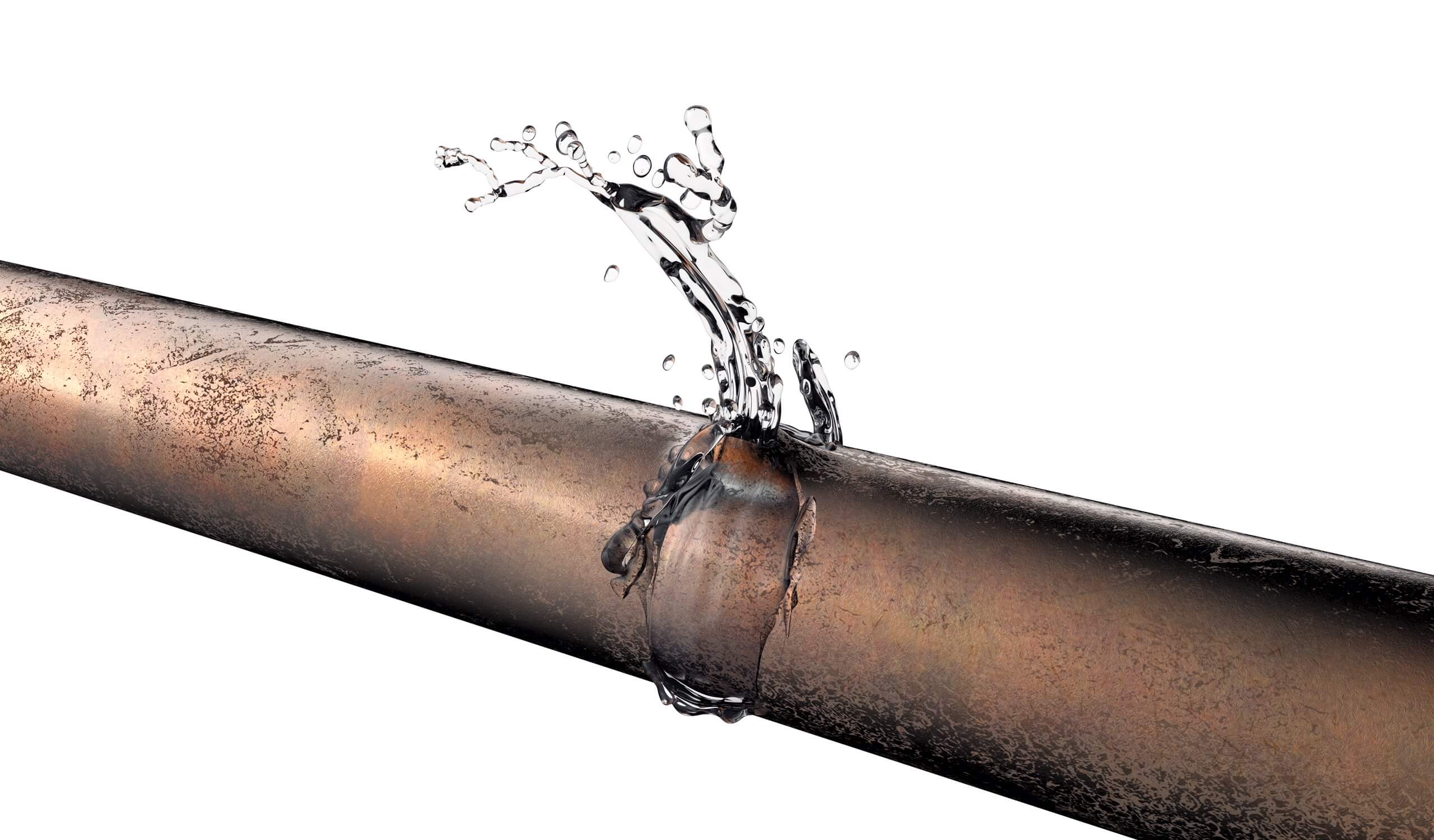
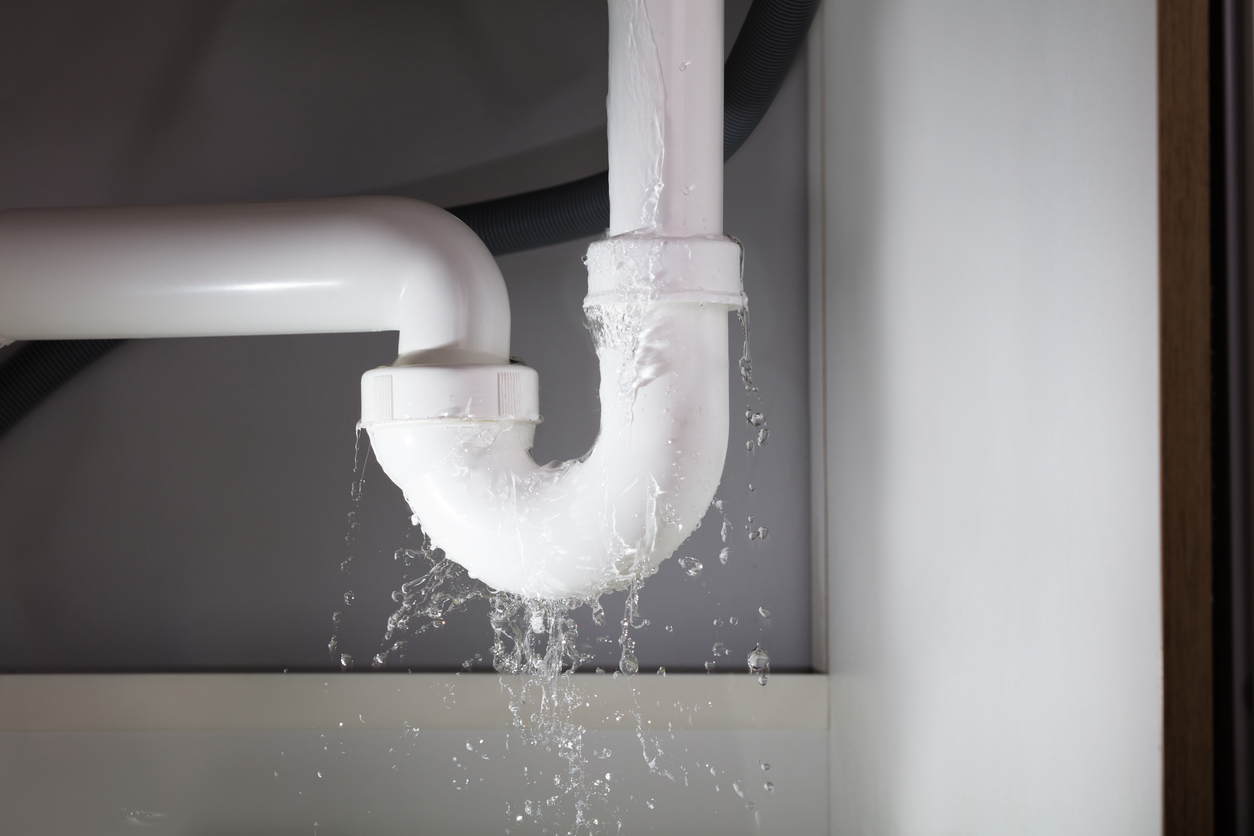
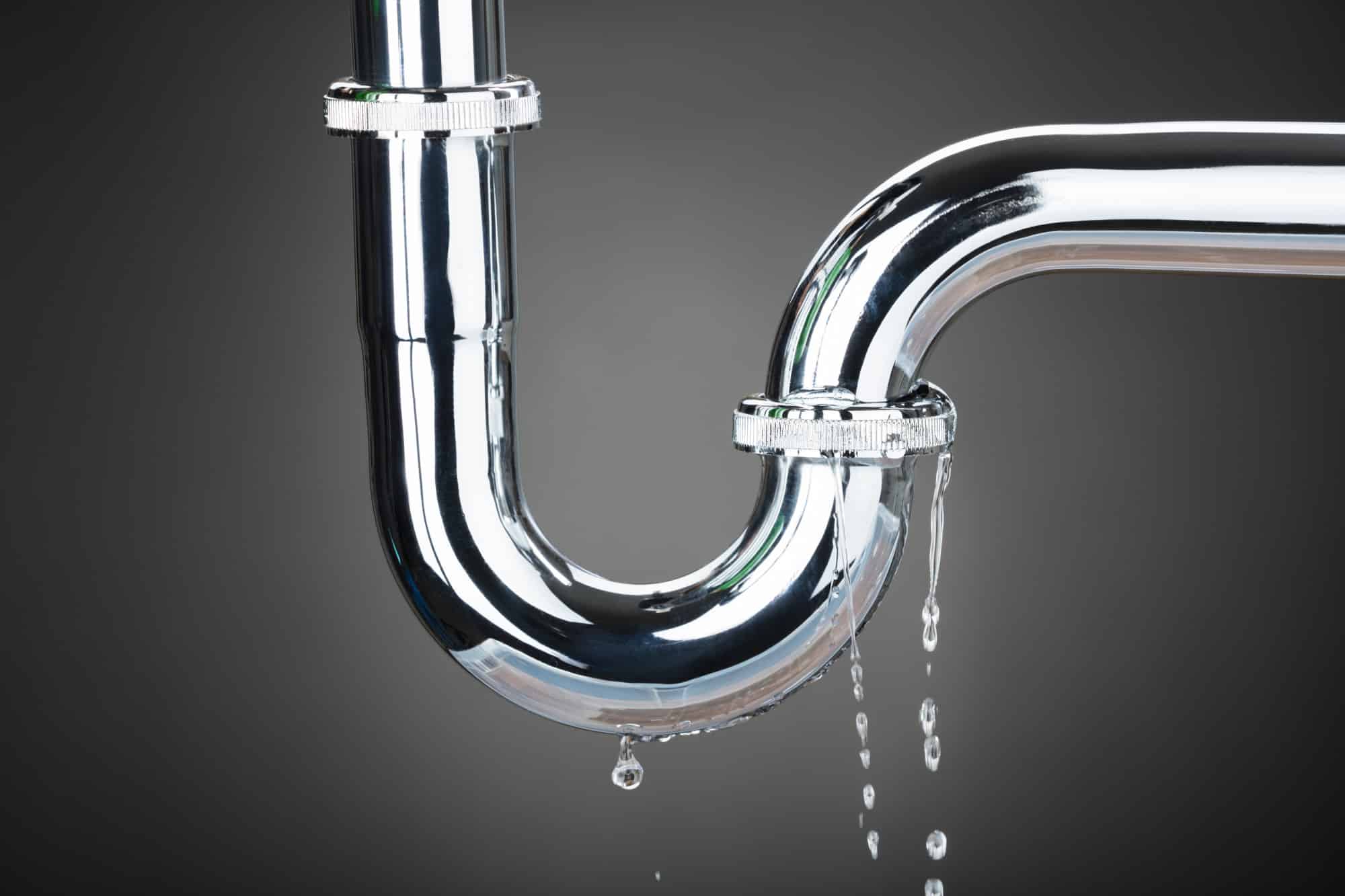
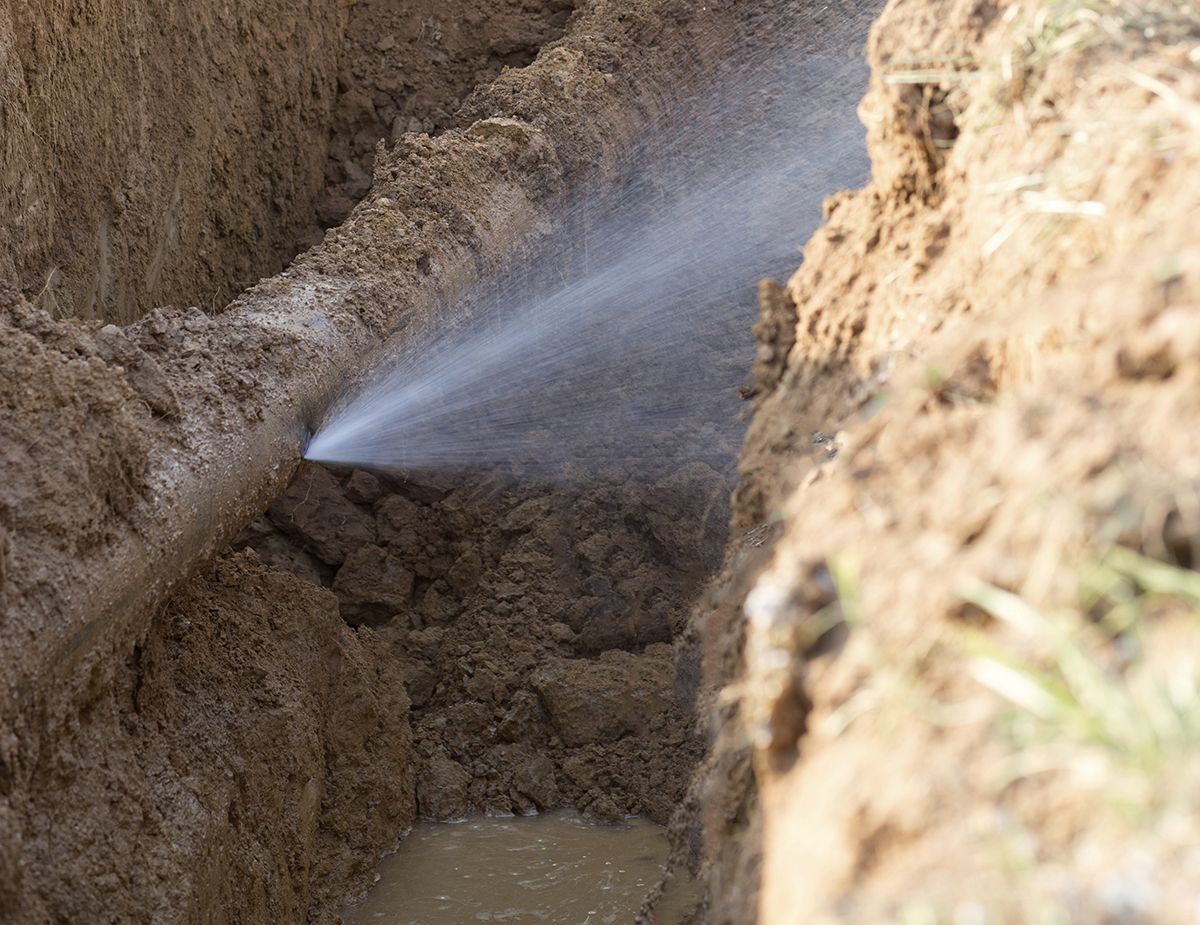
.jpg)
